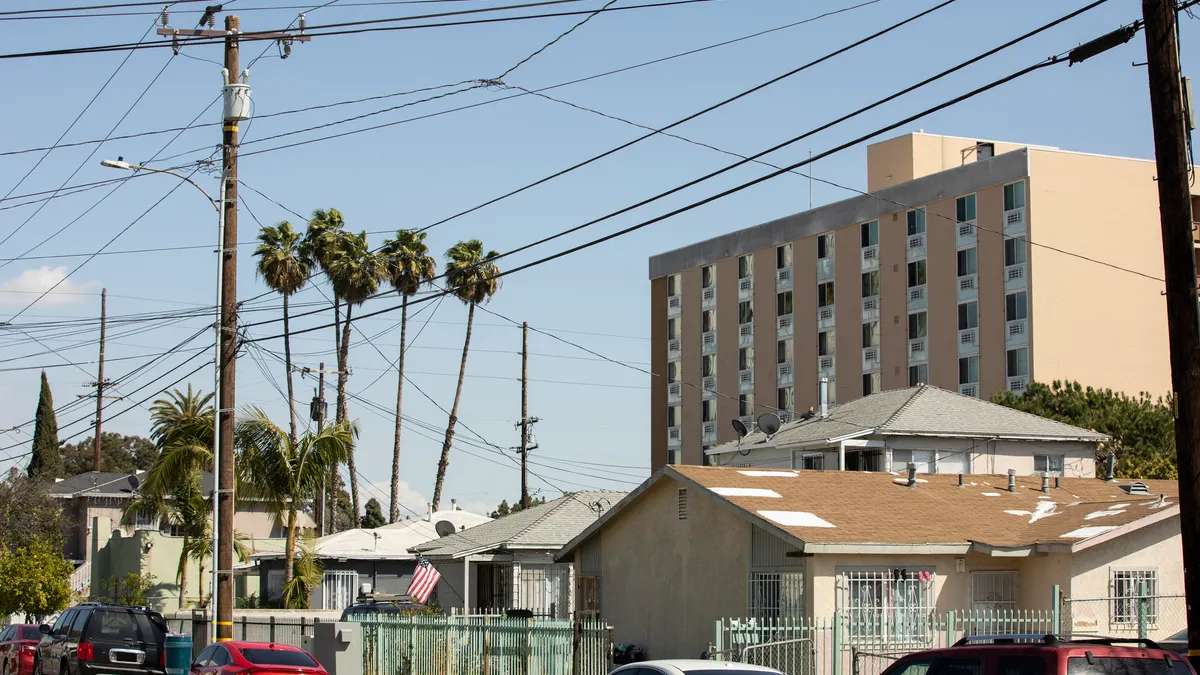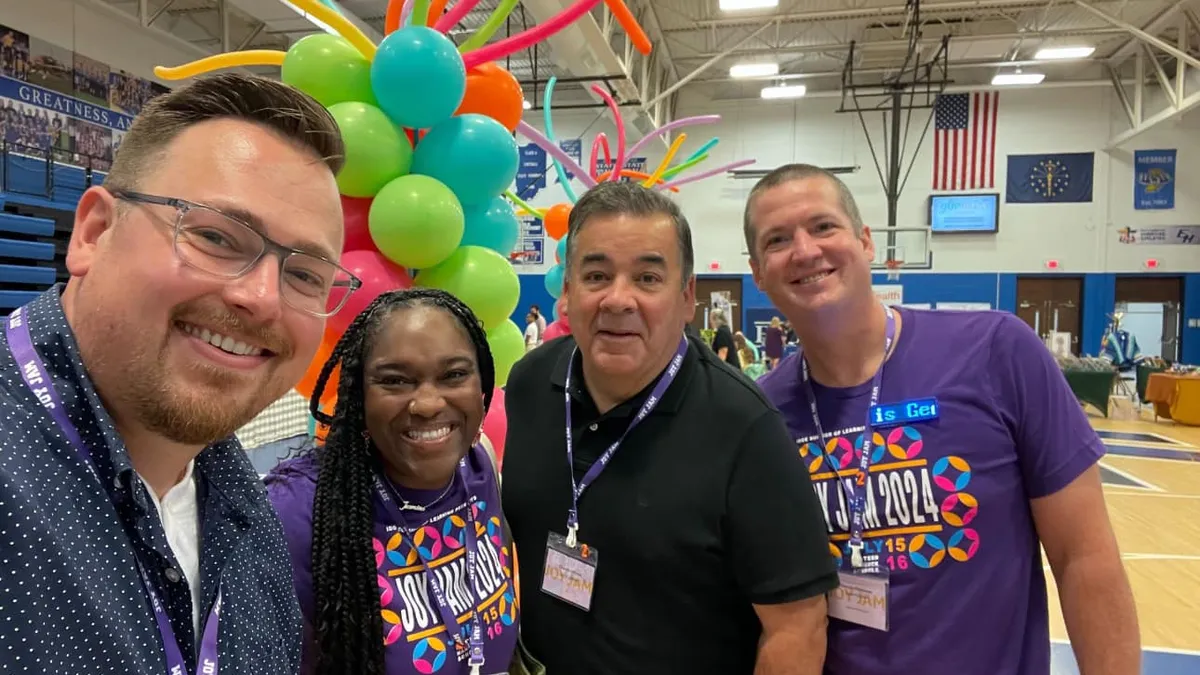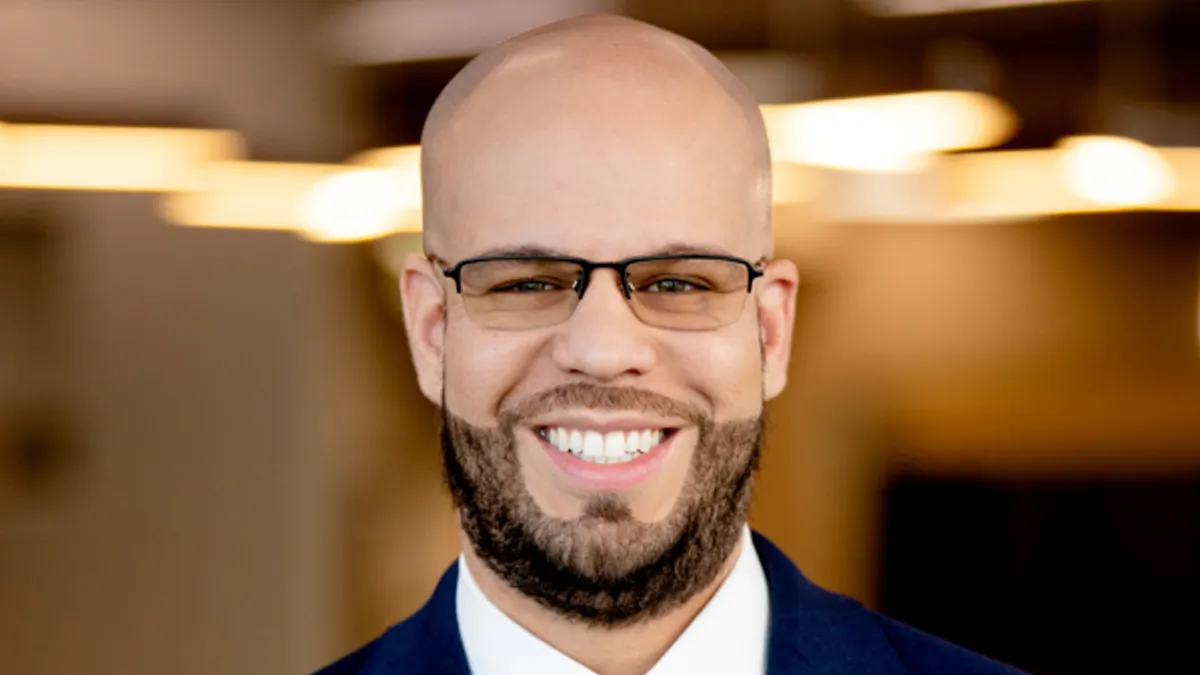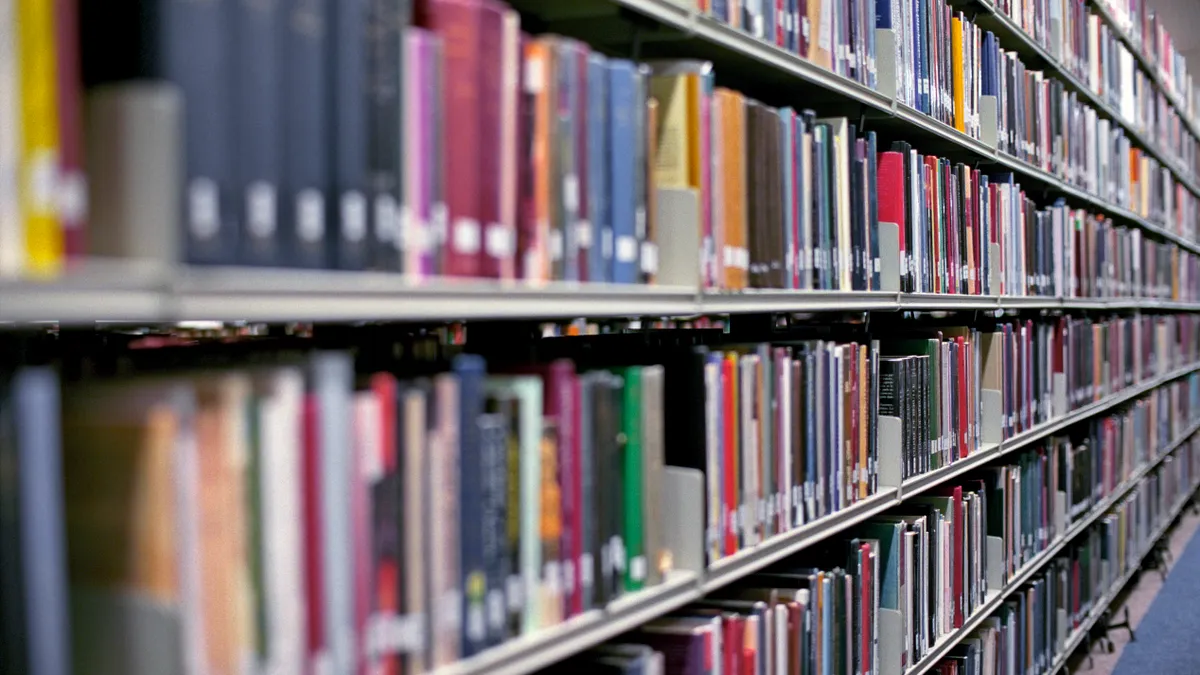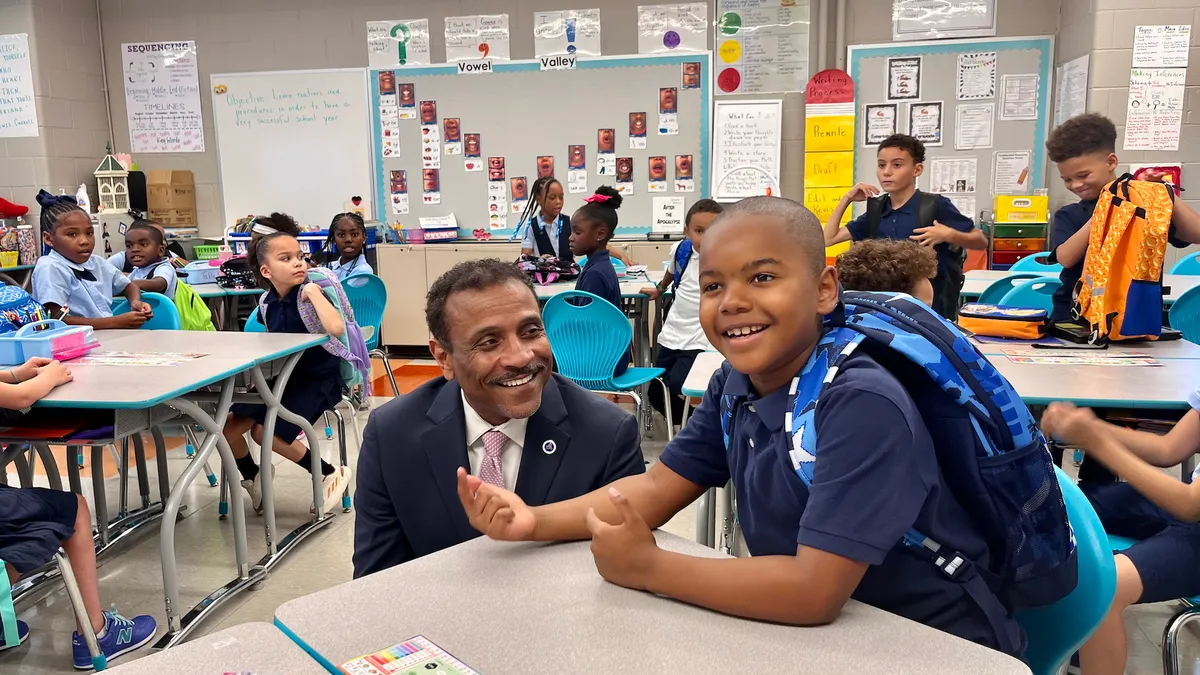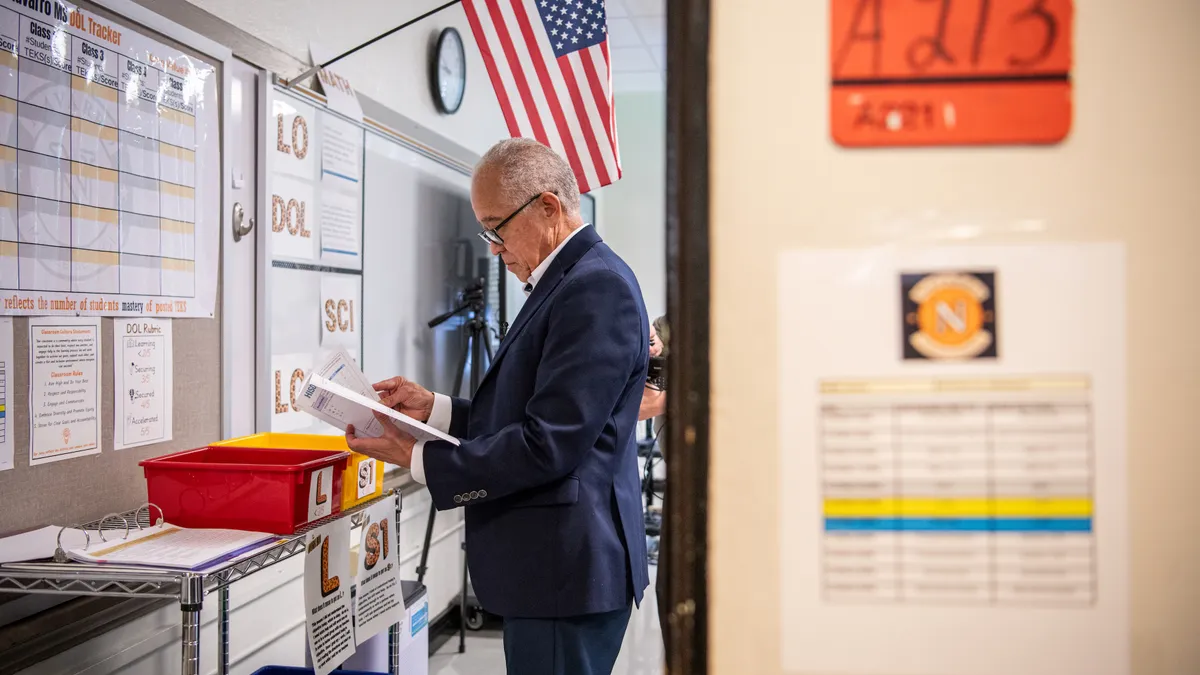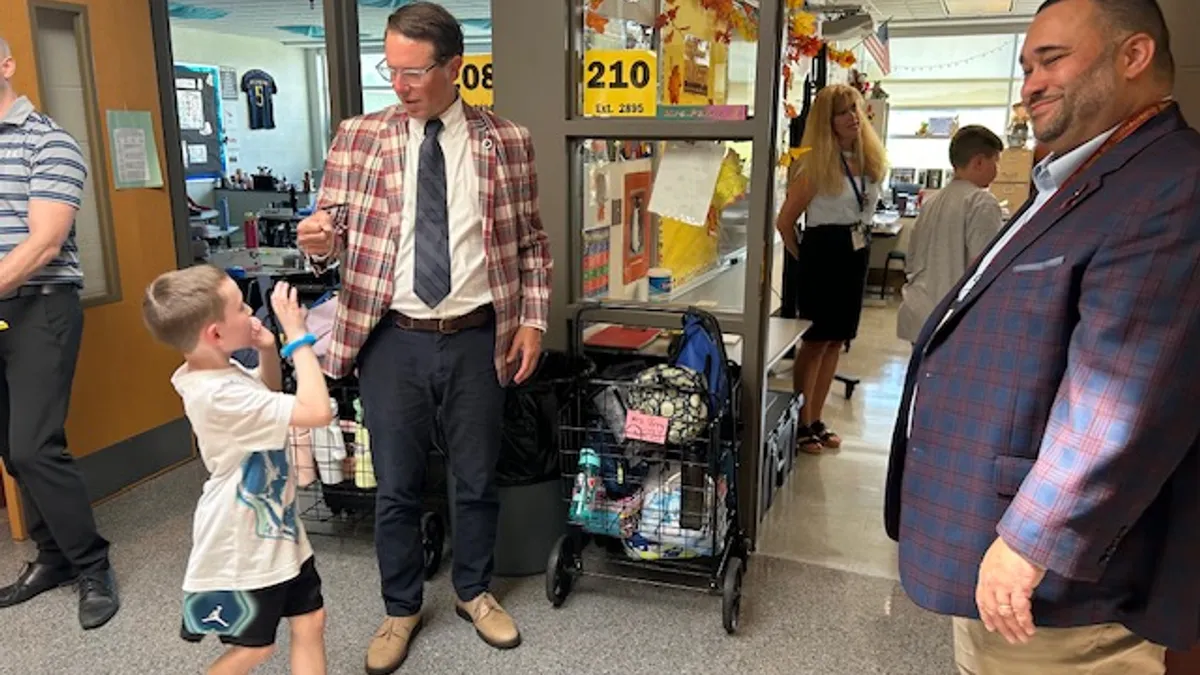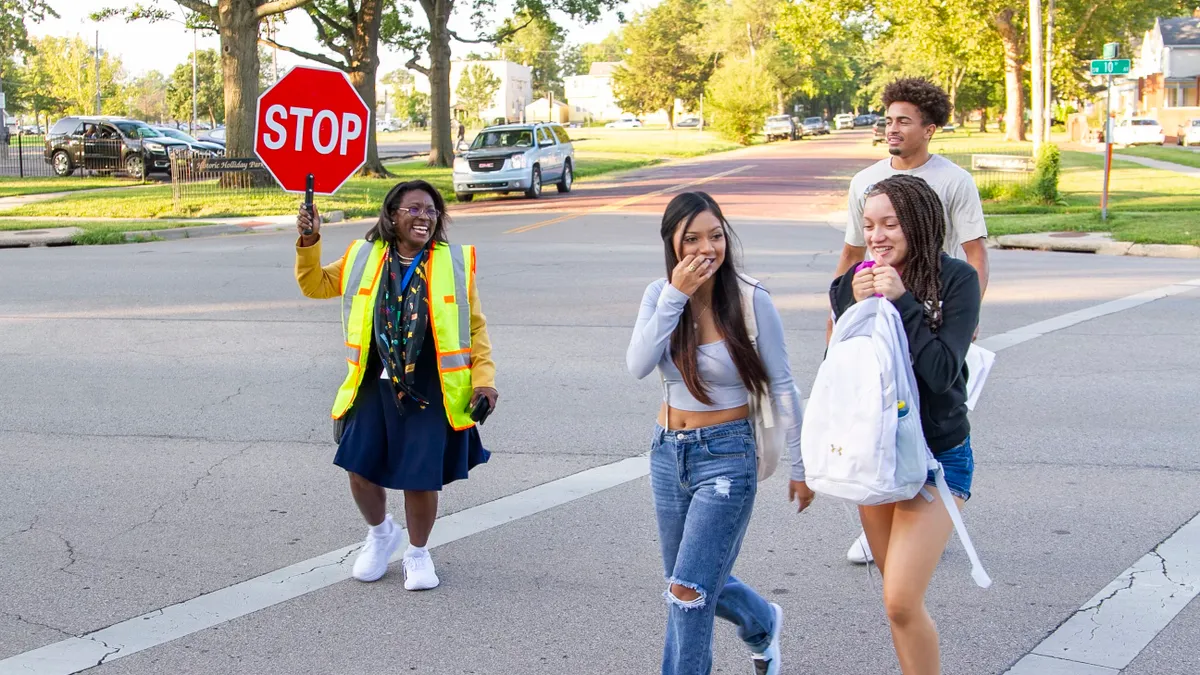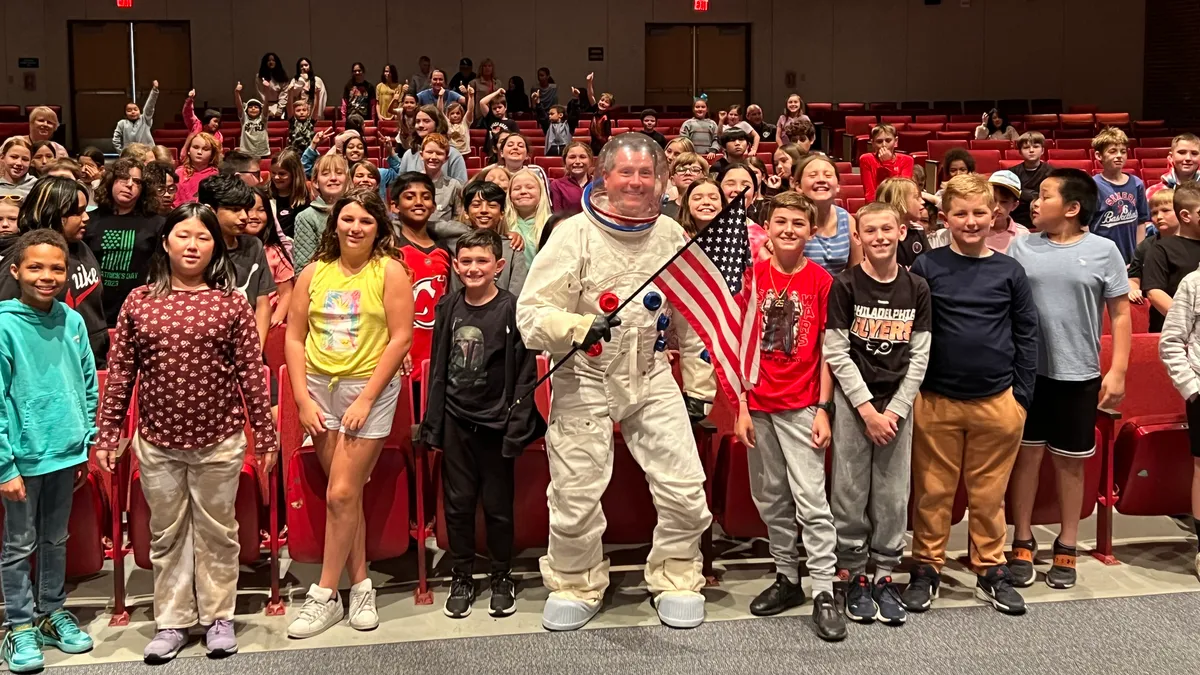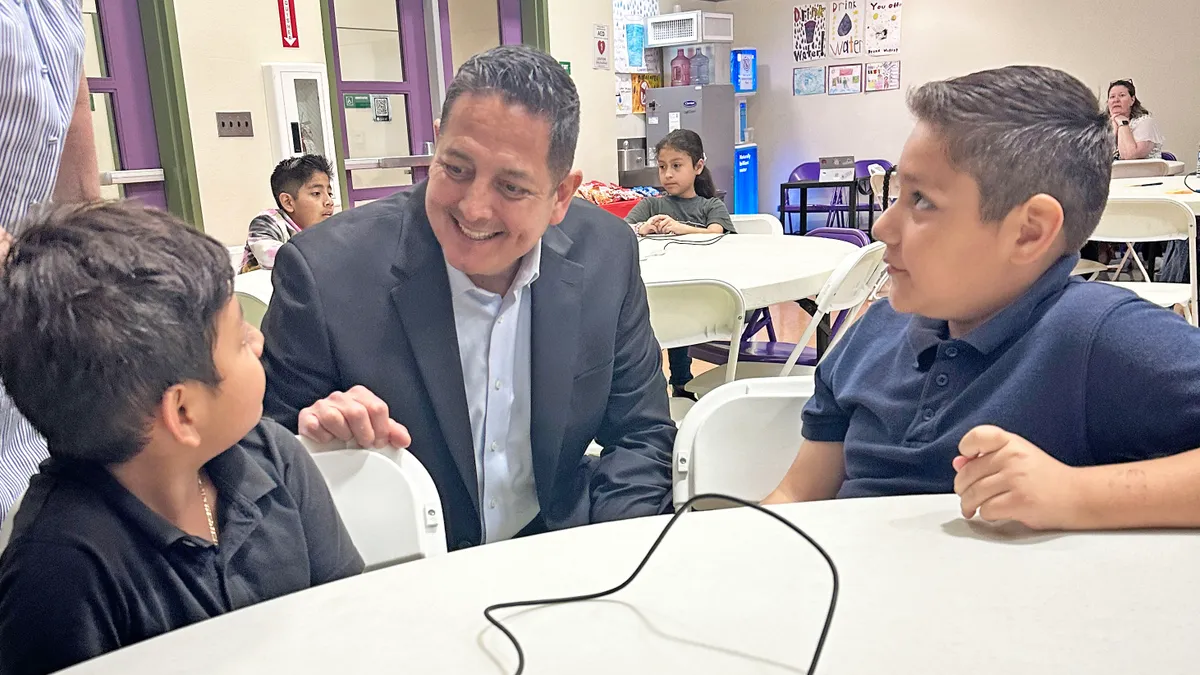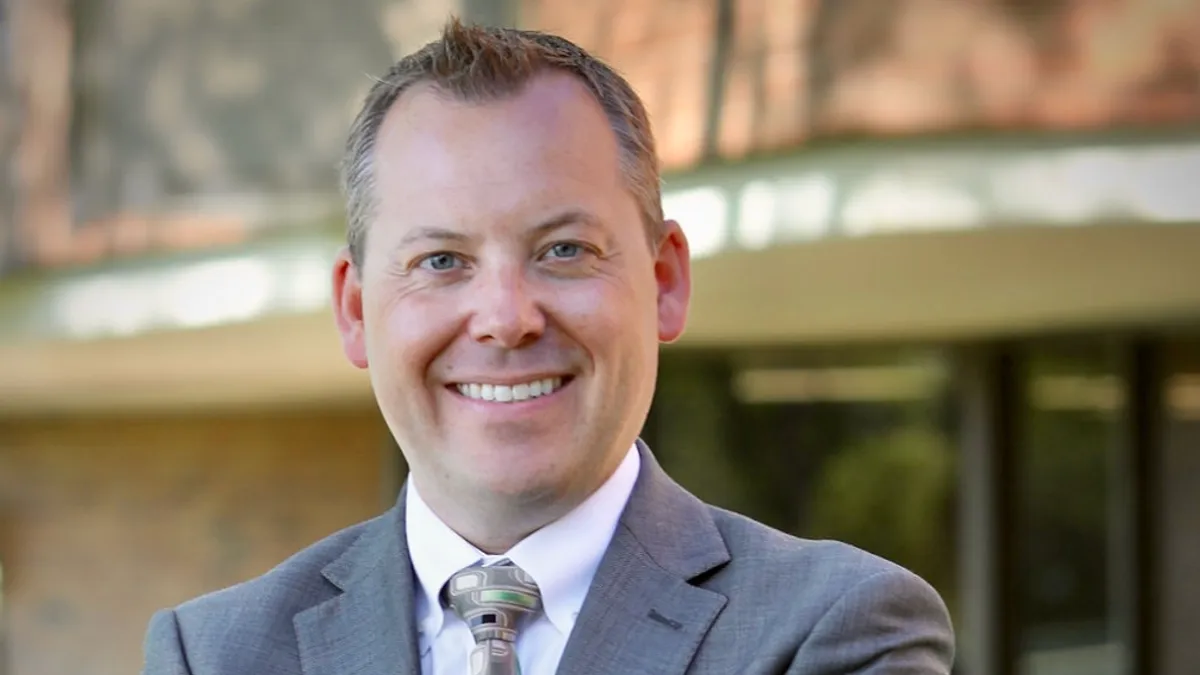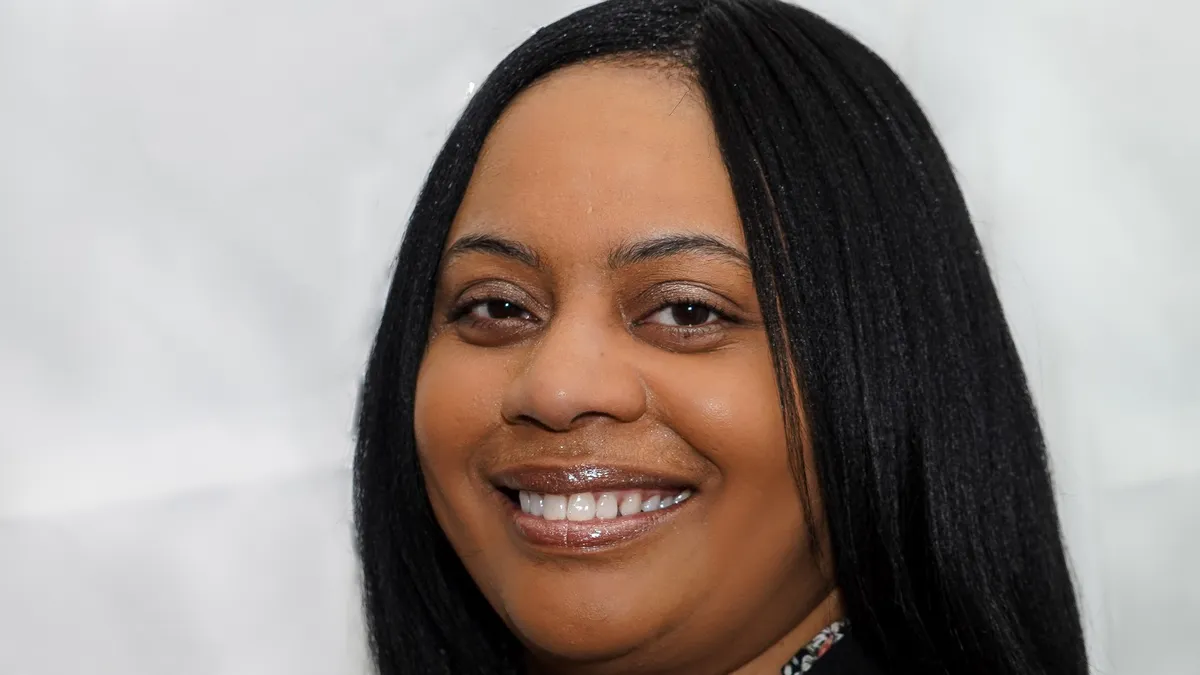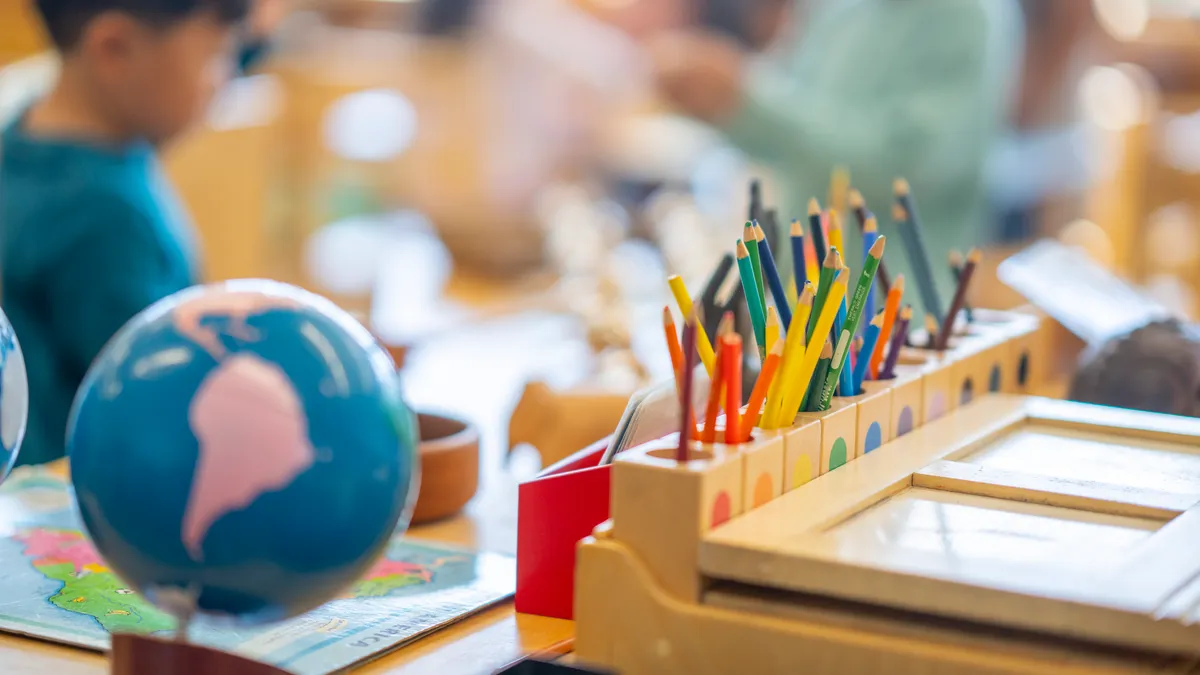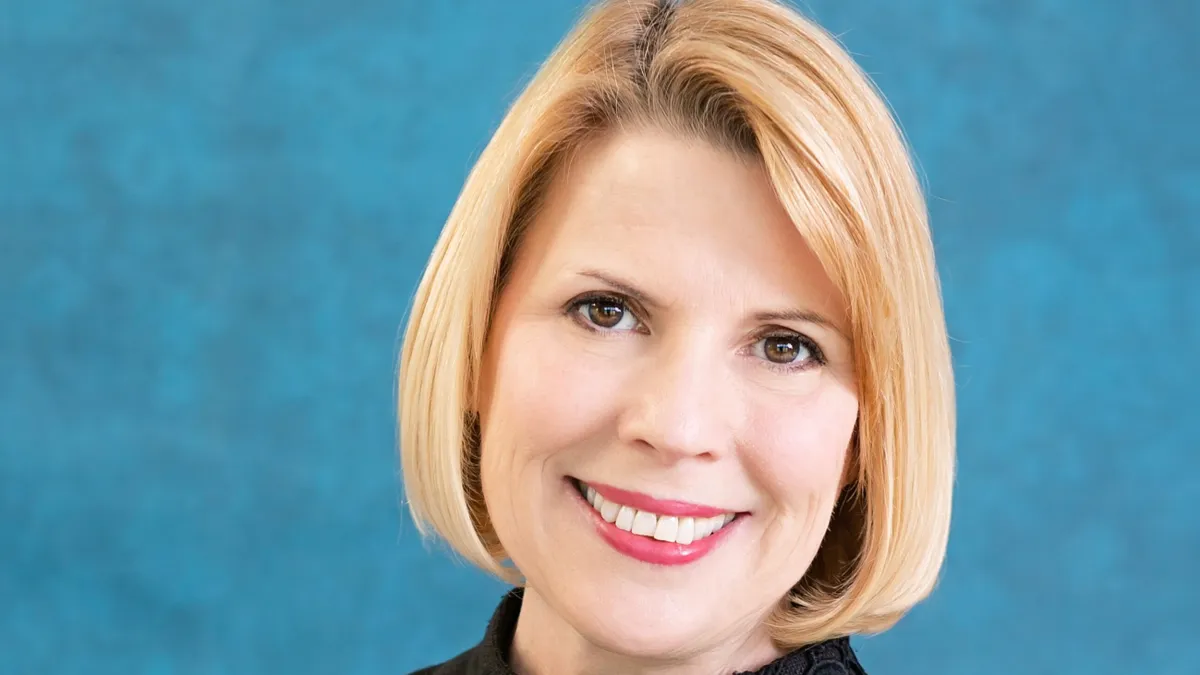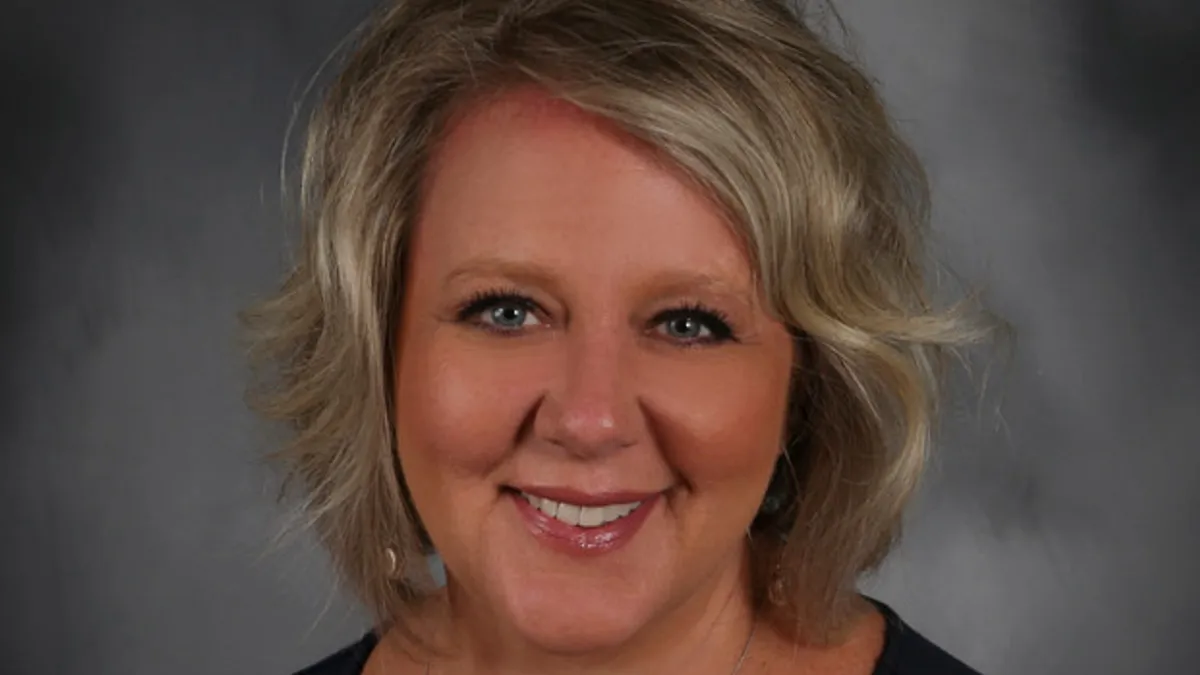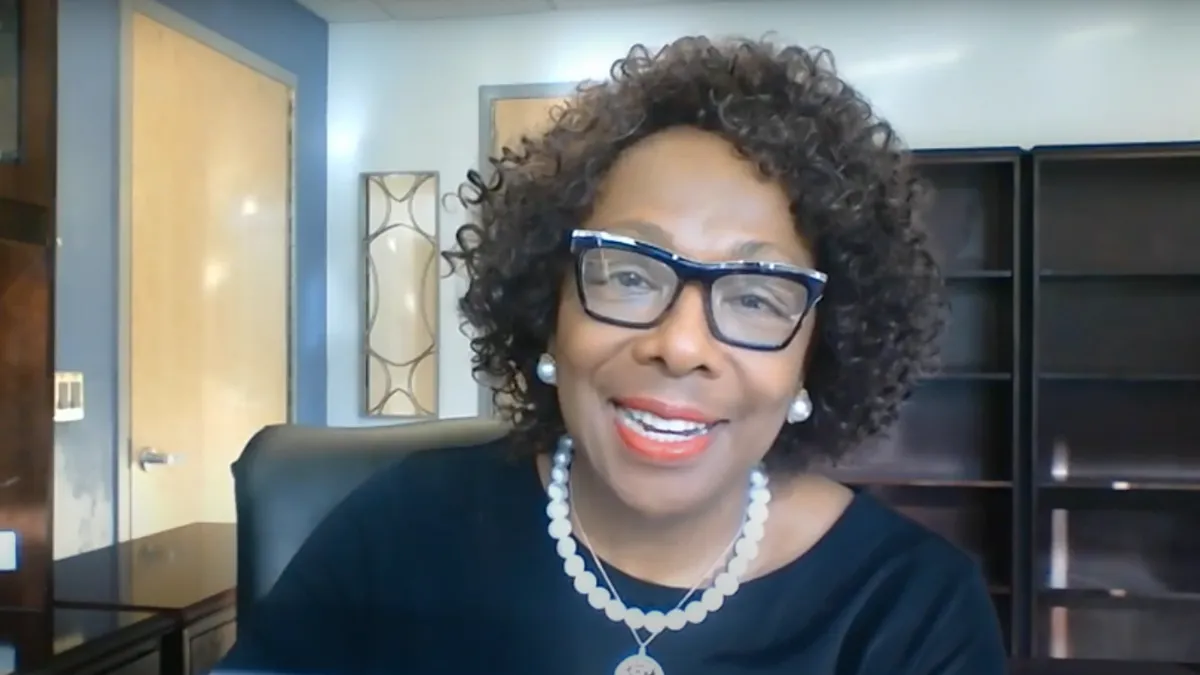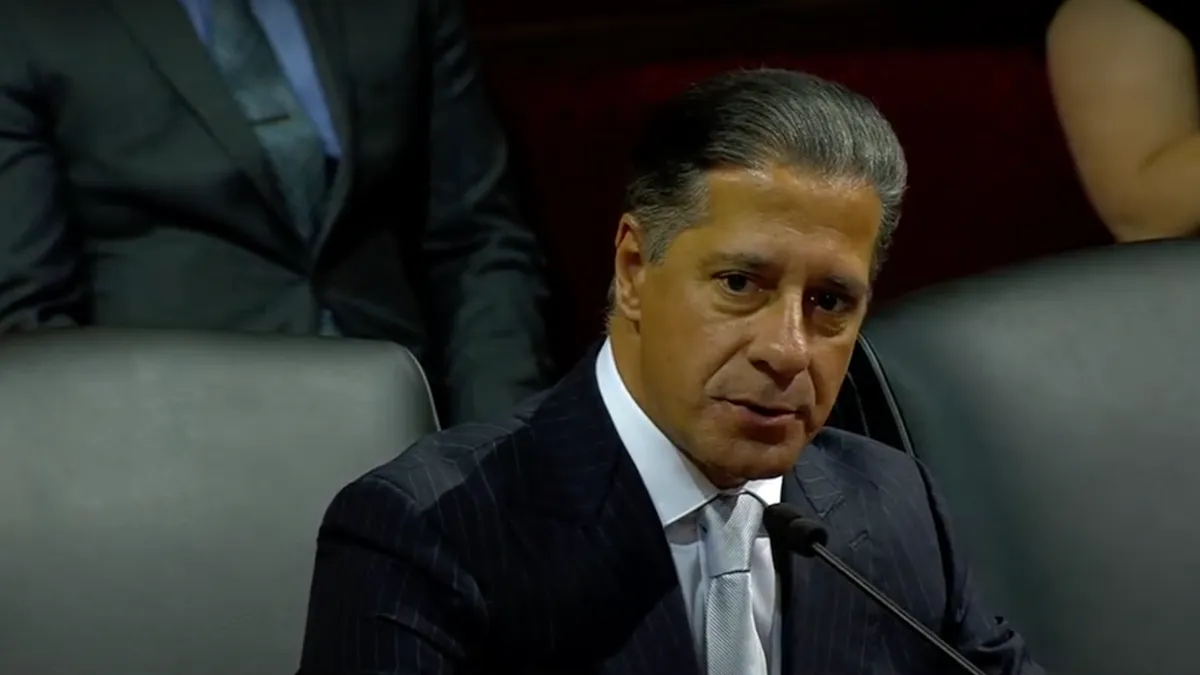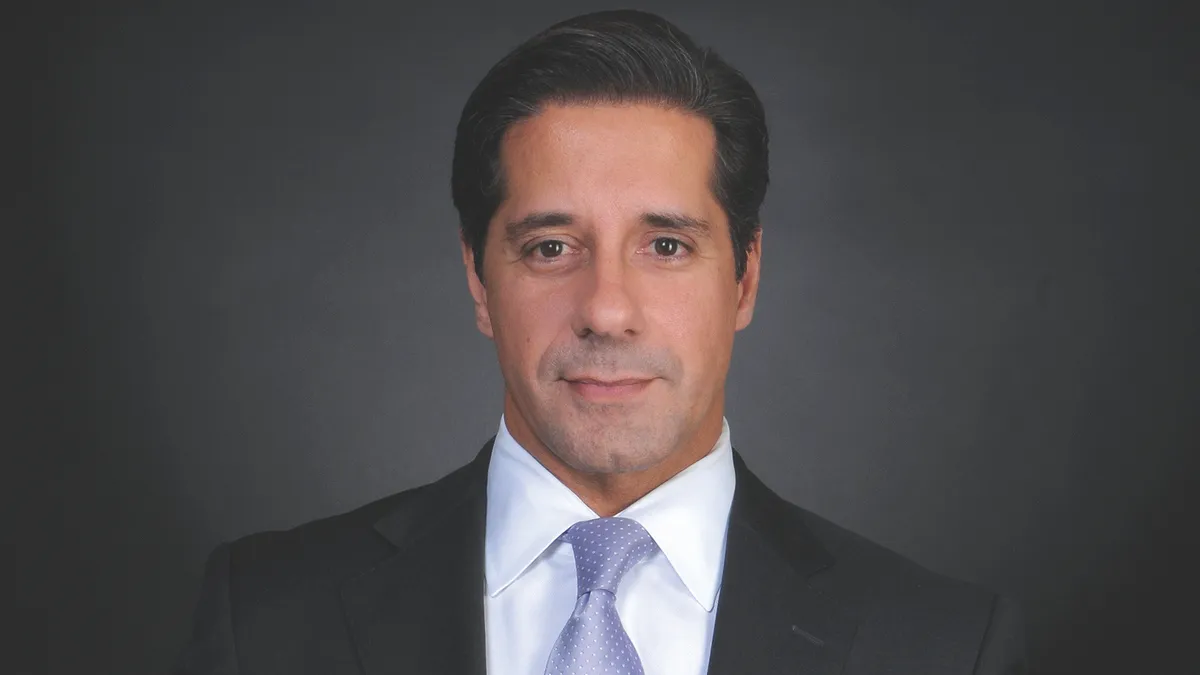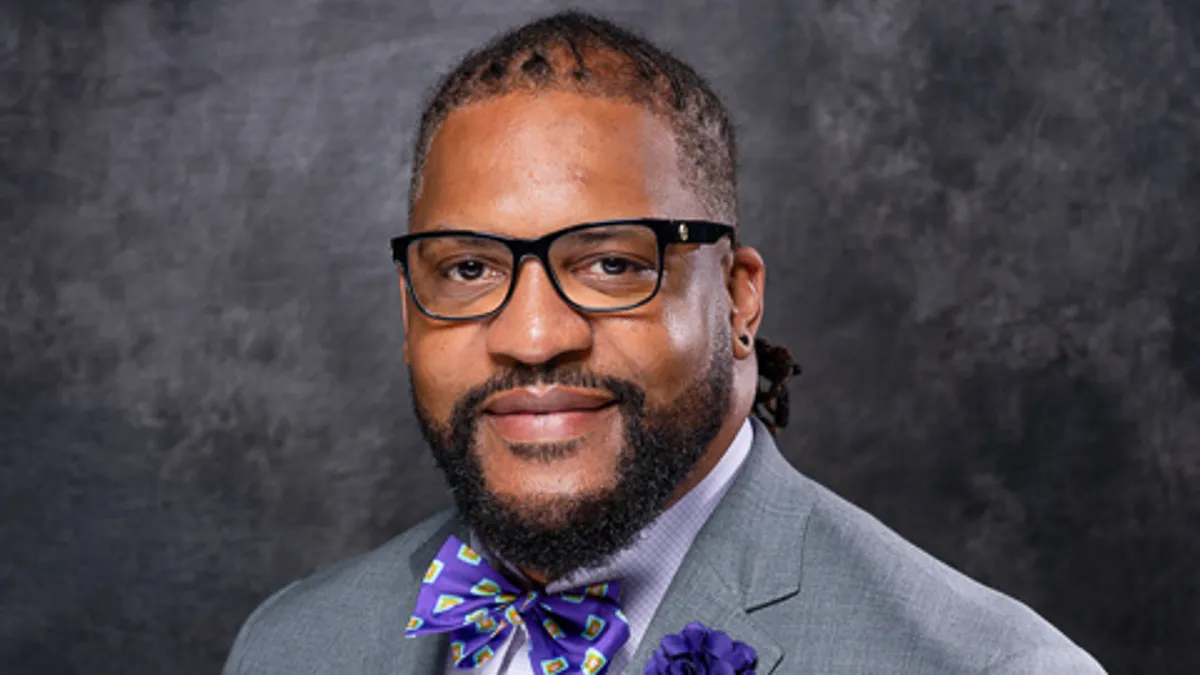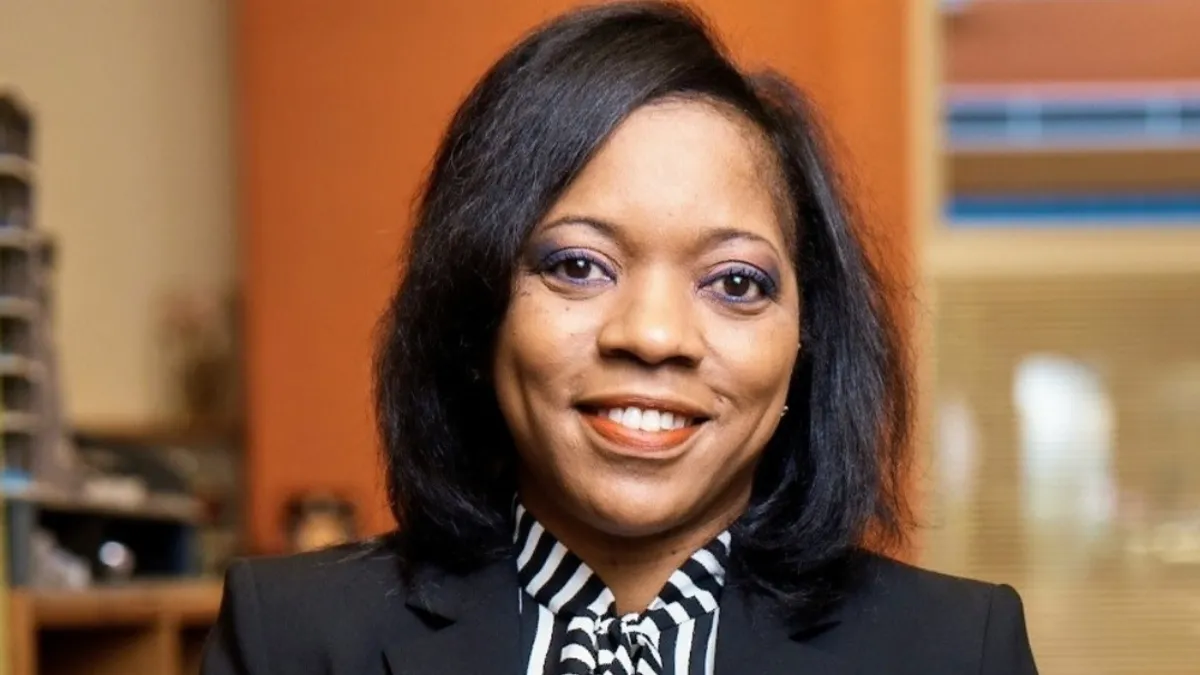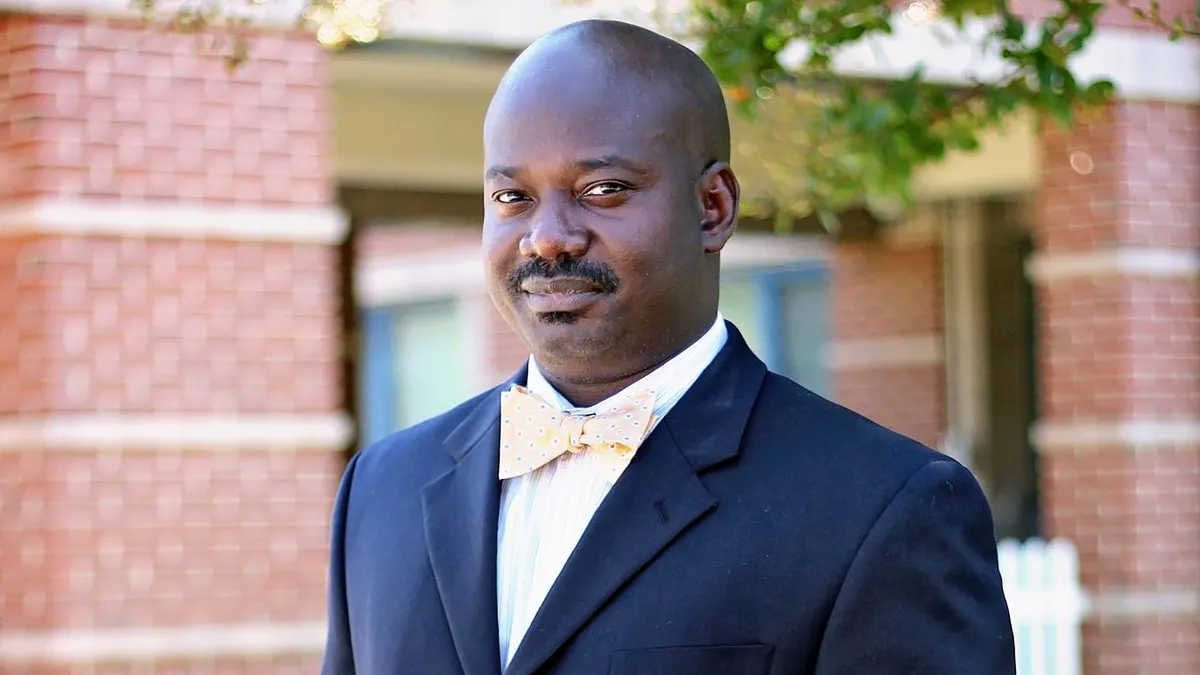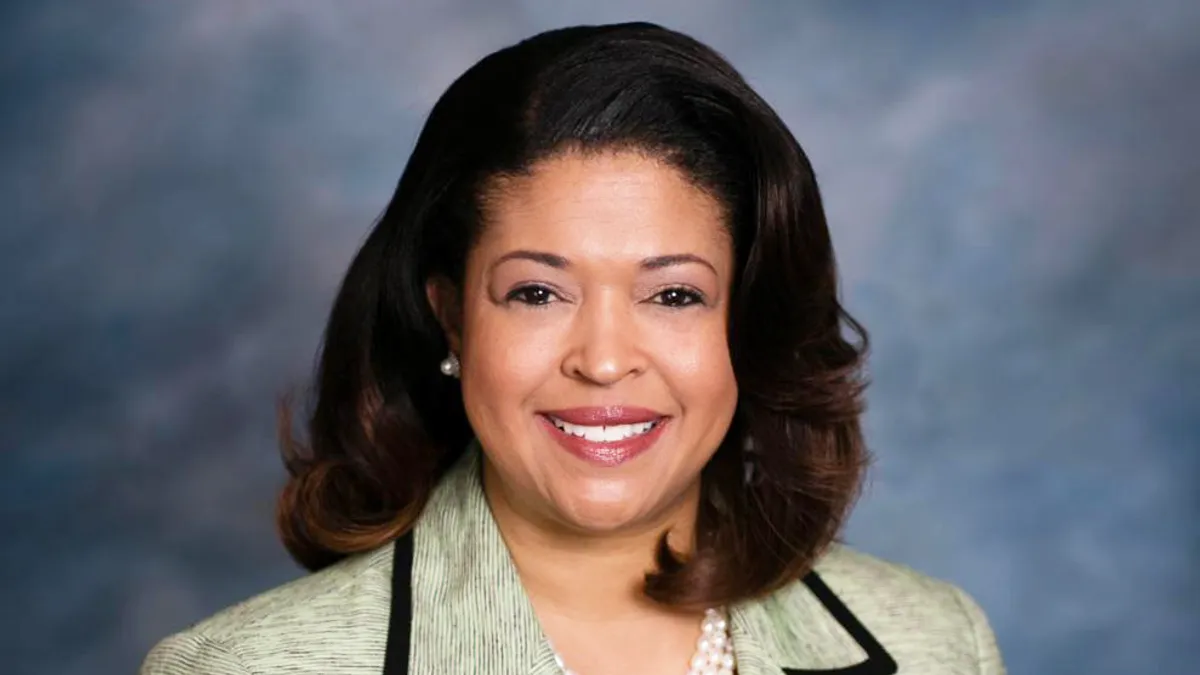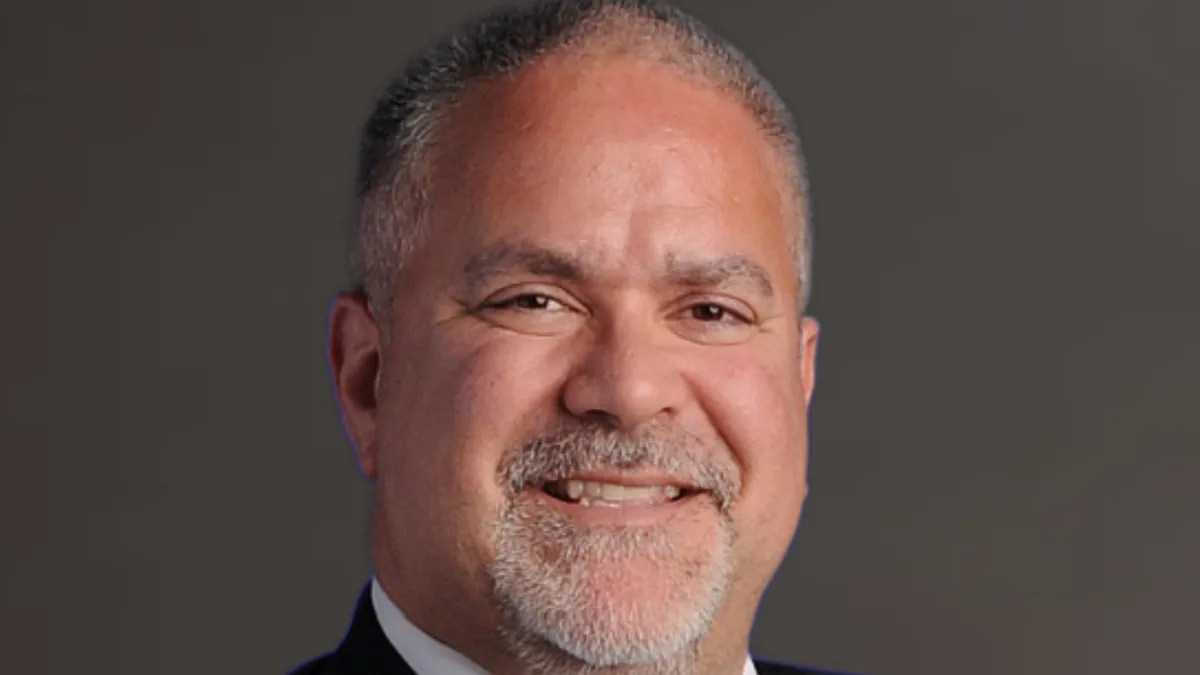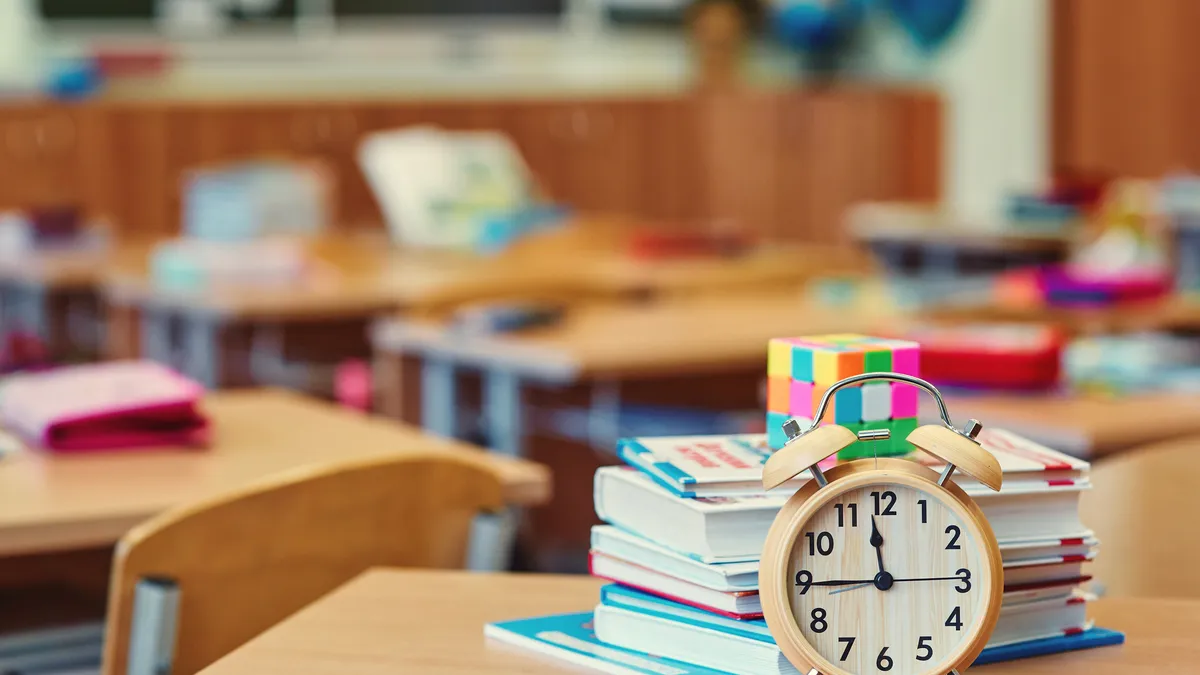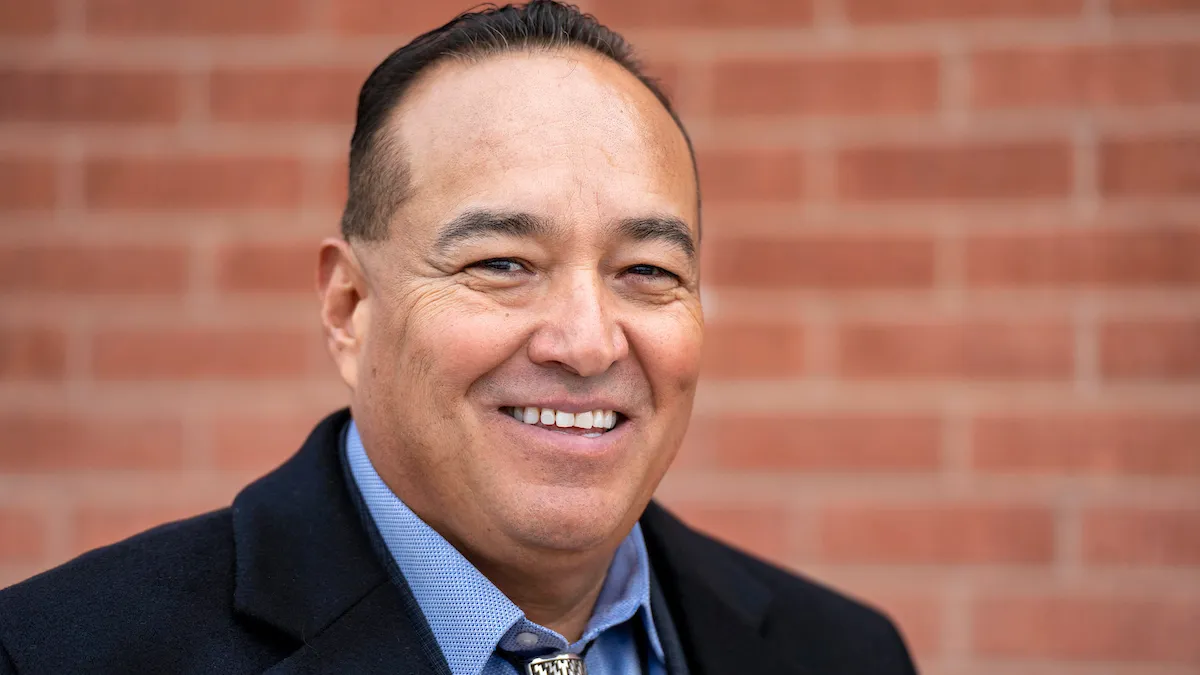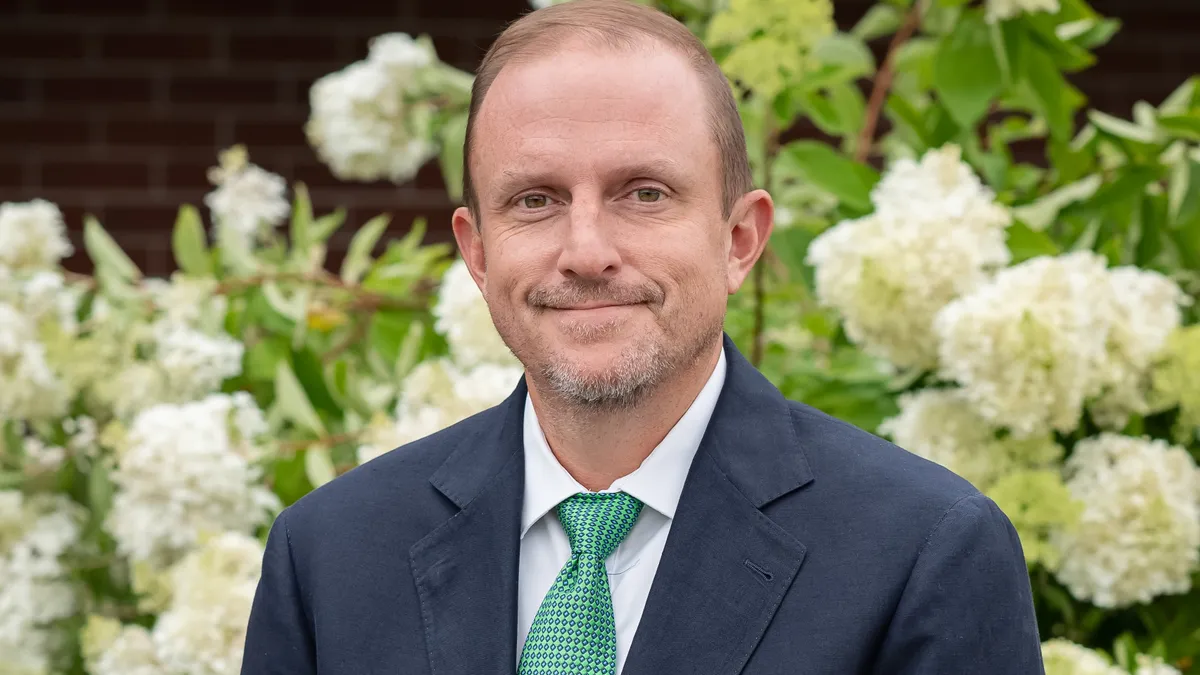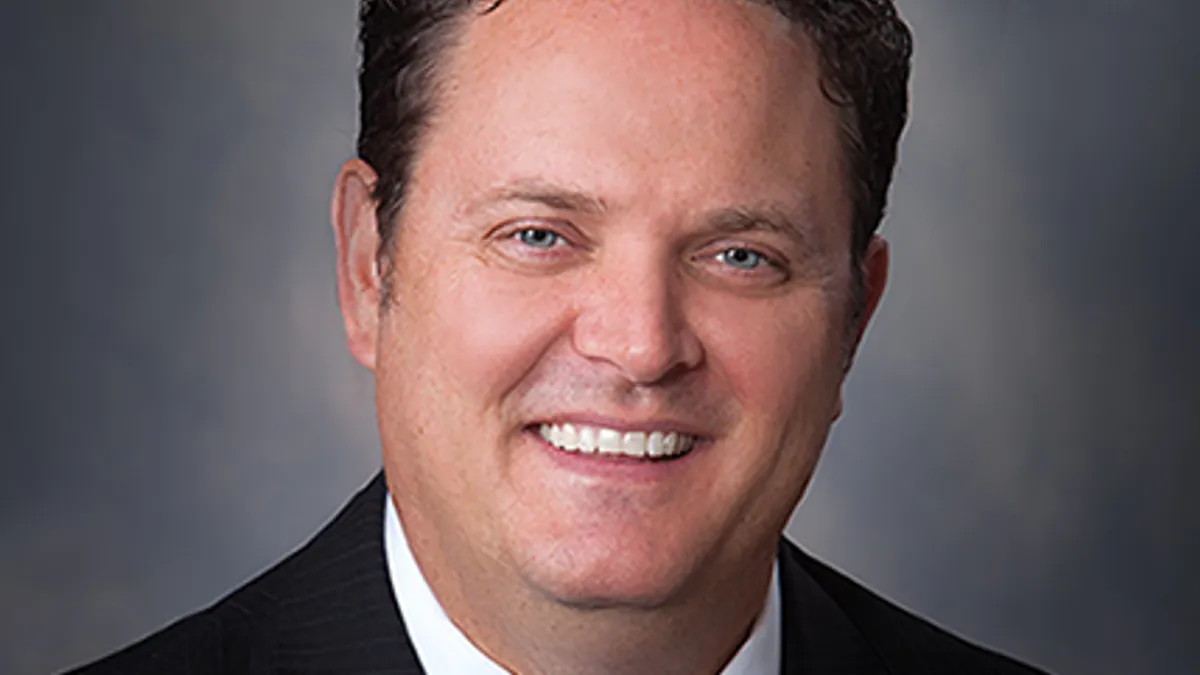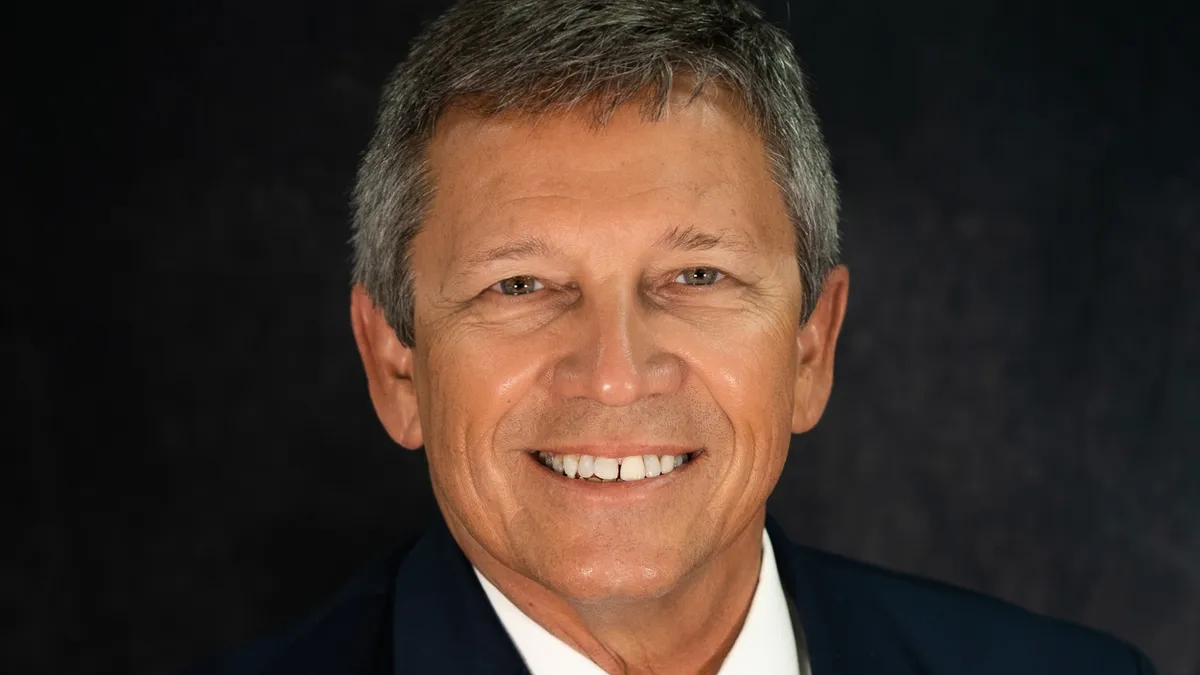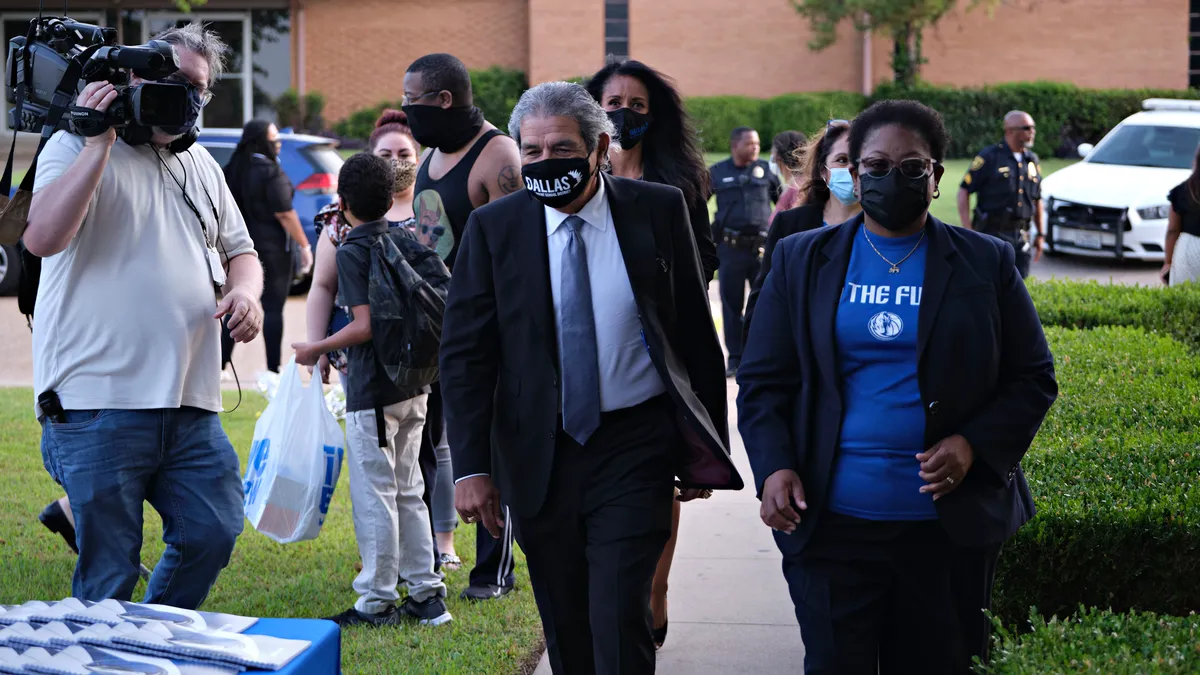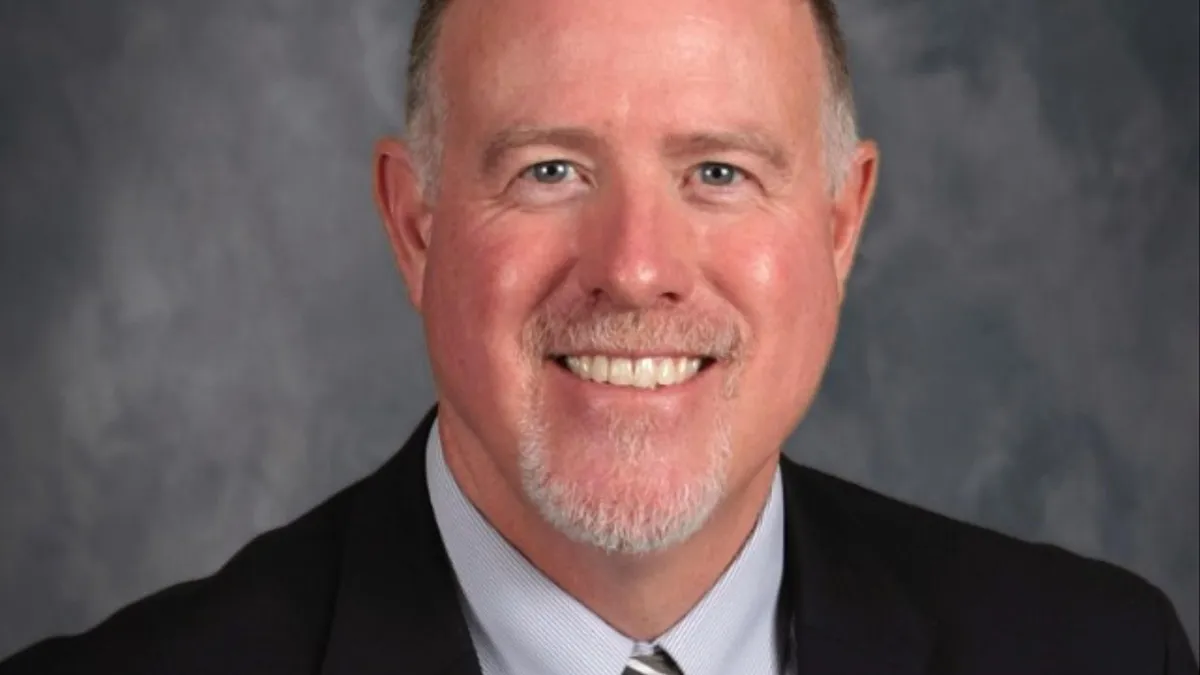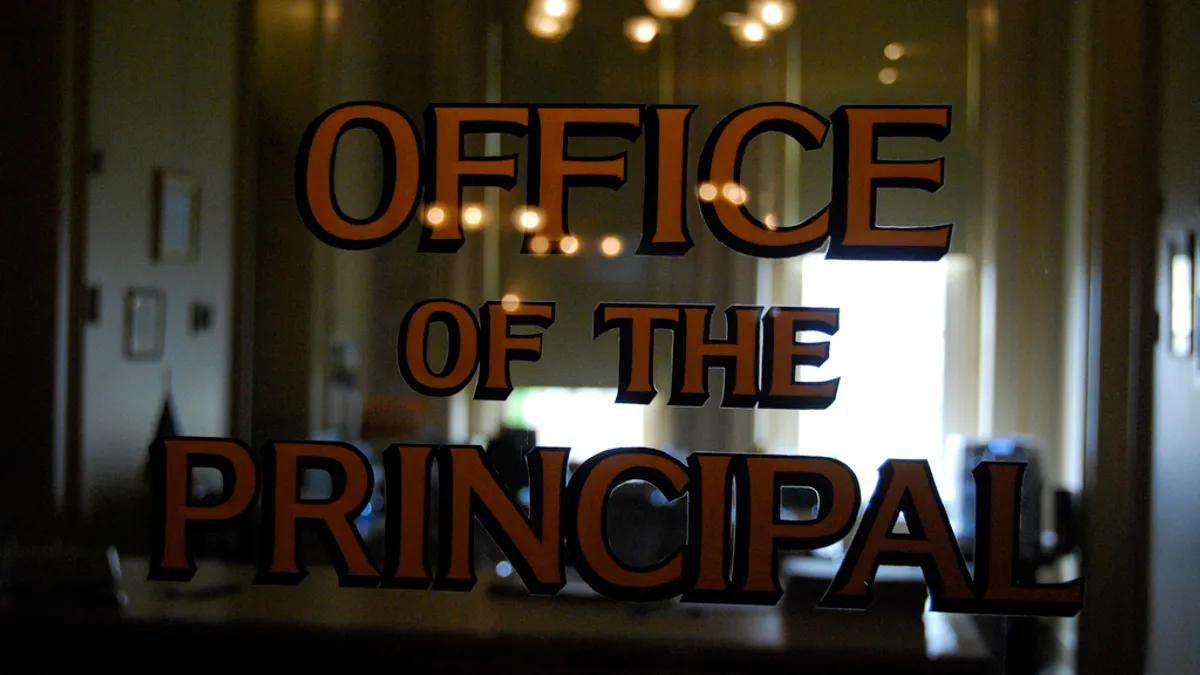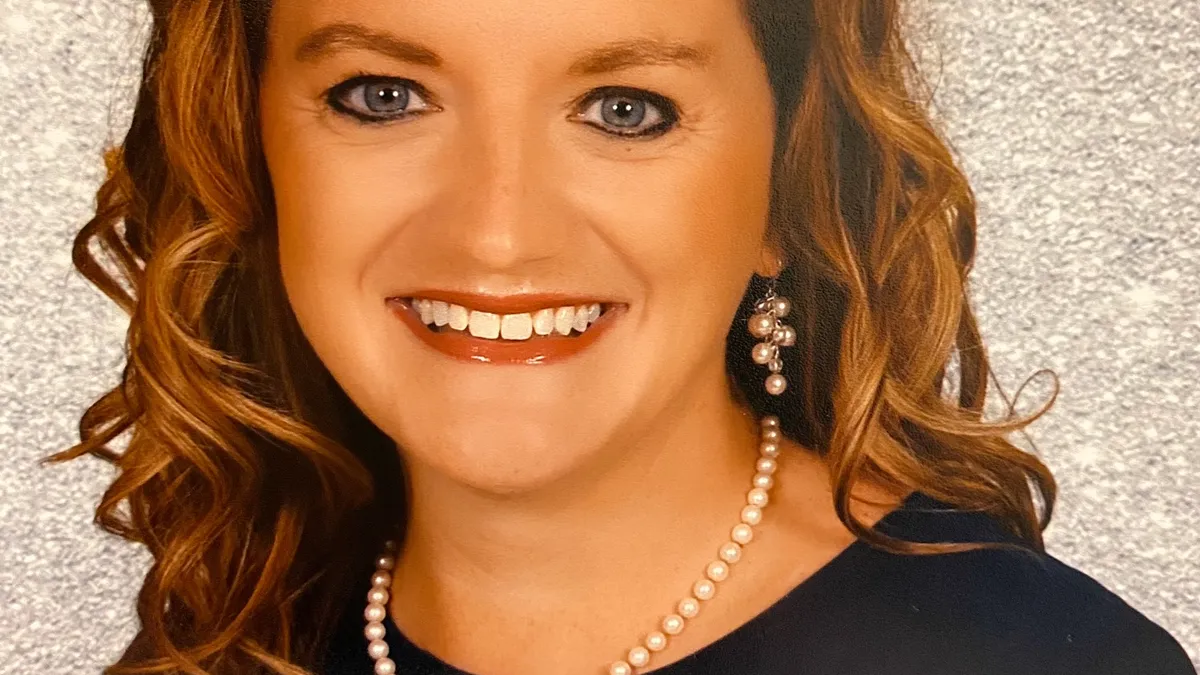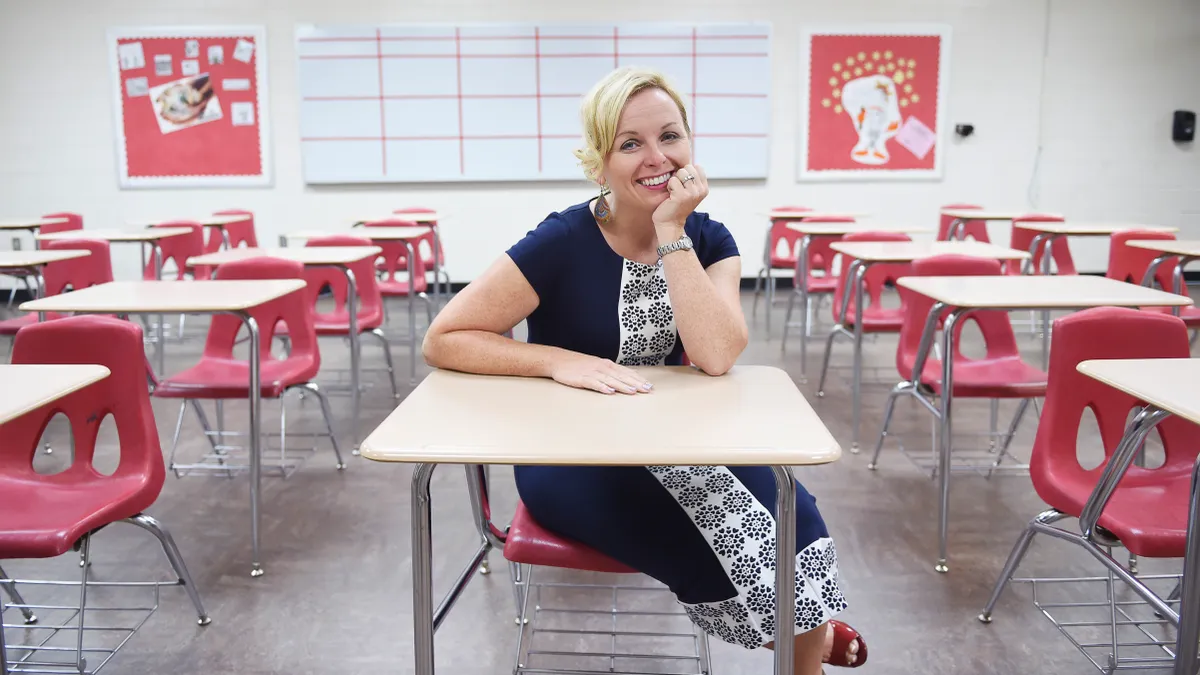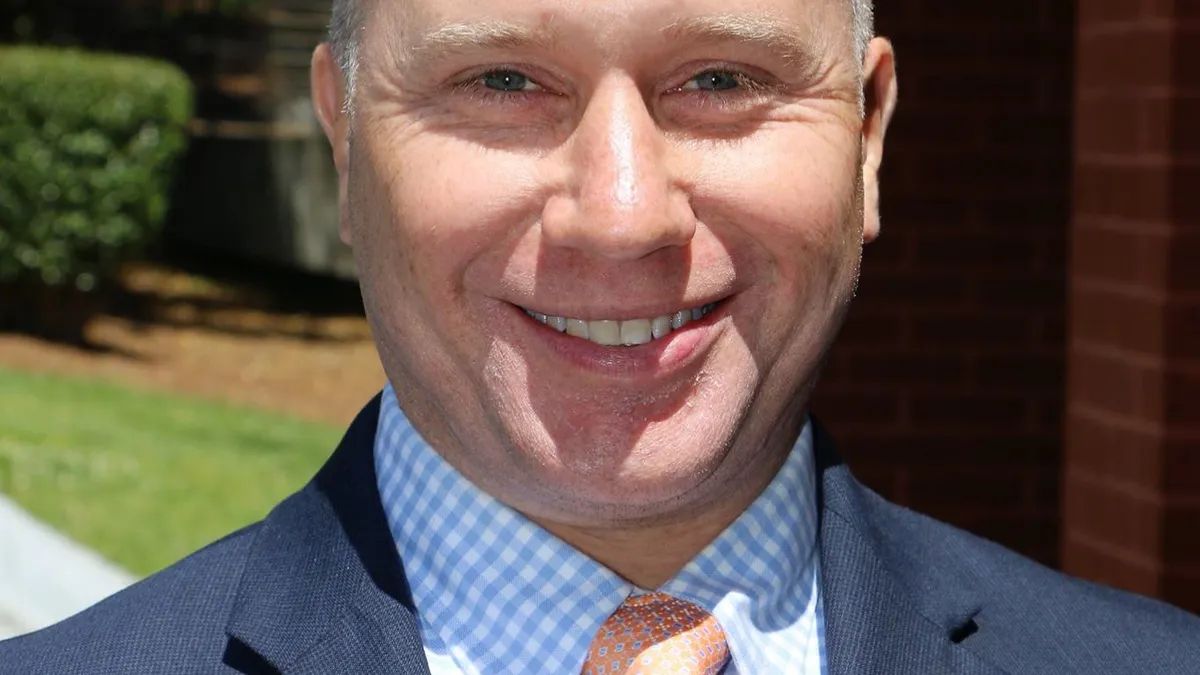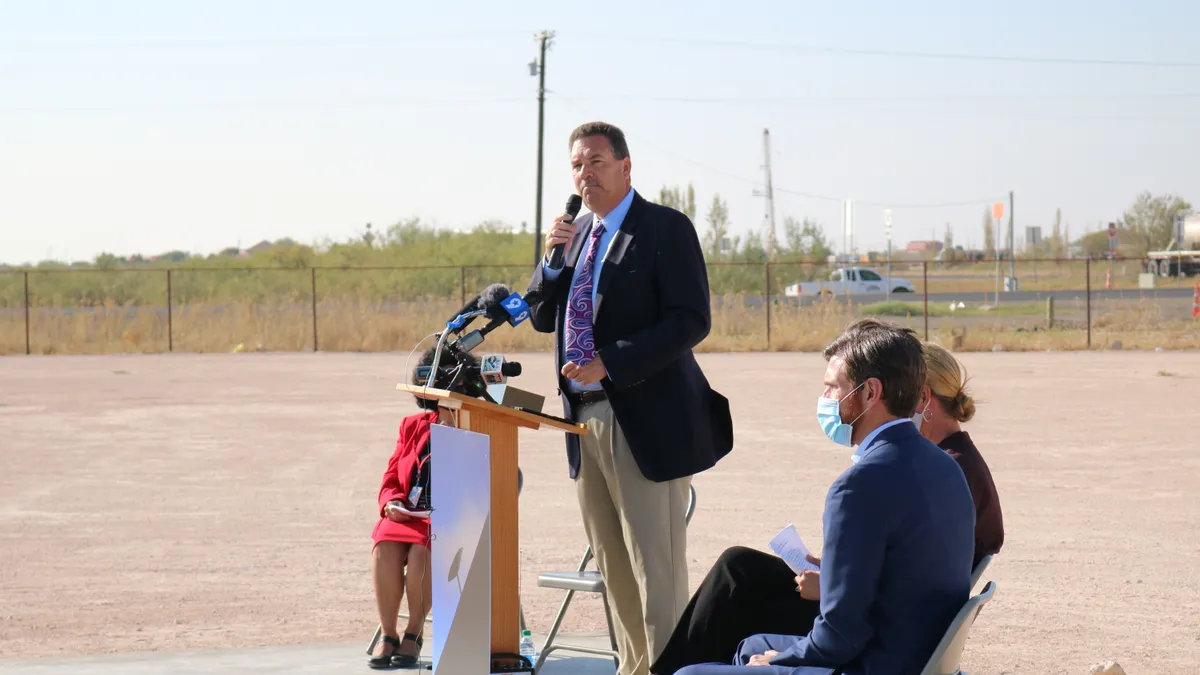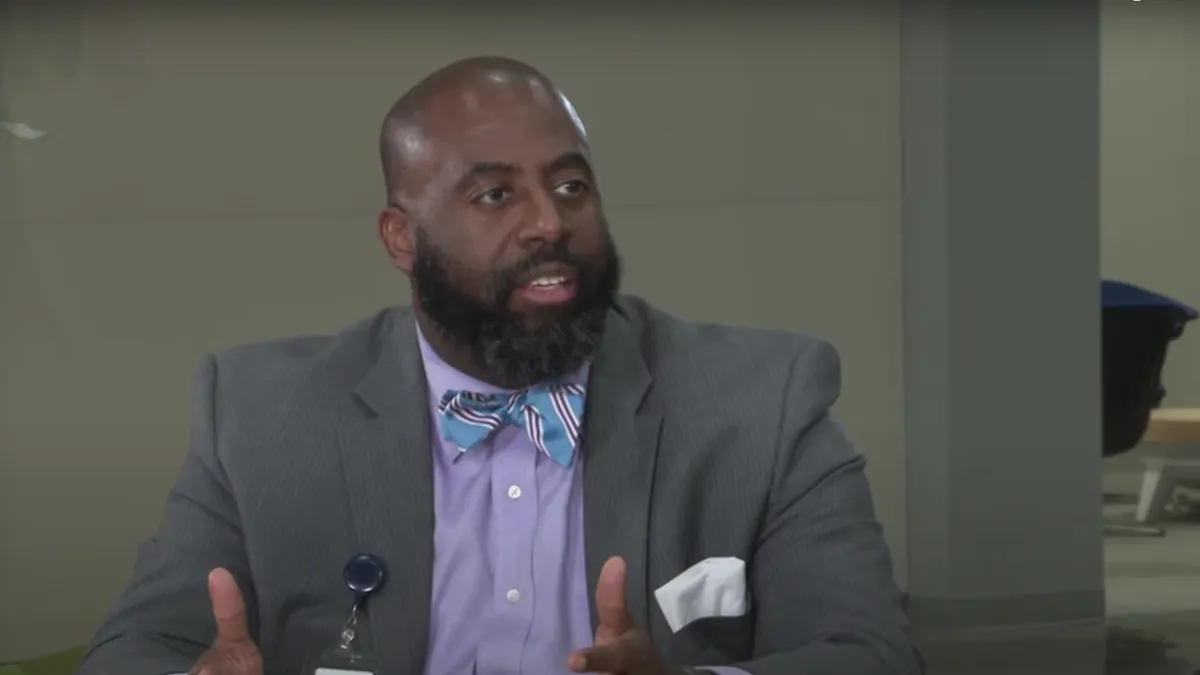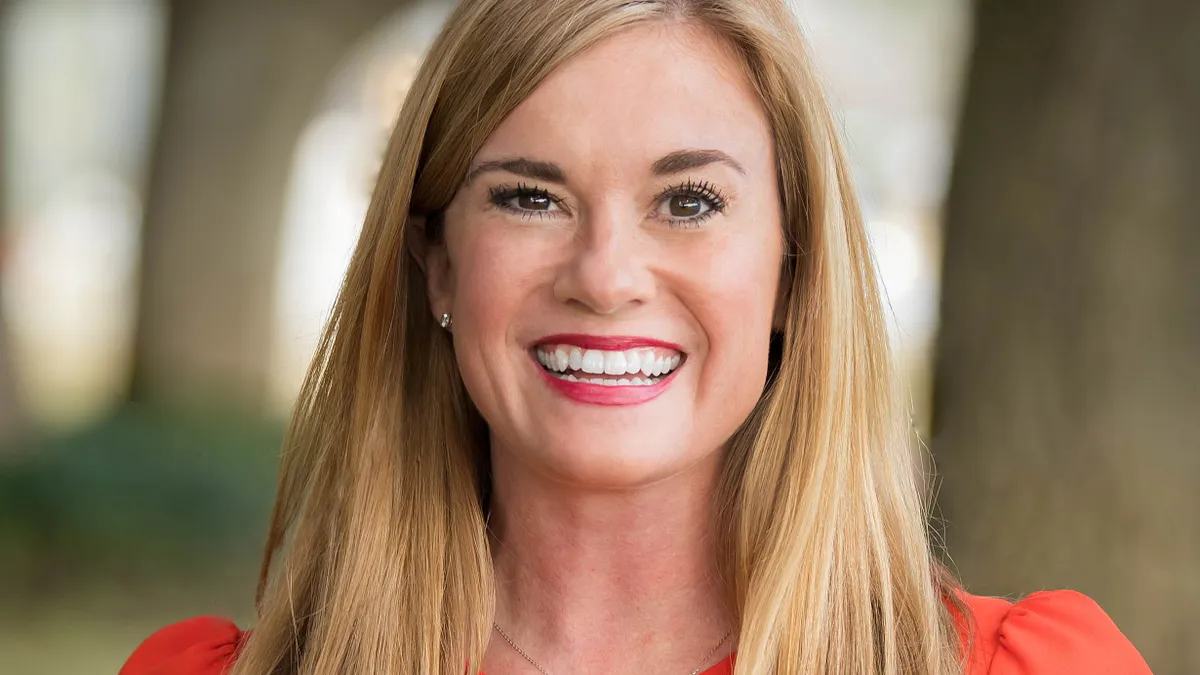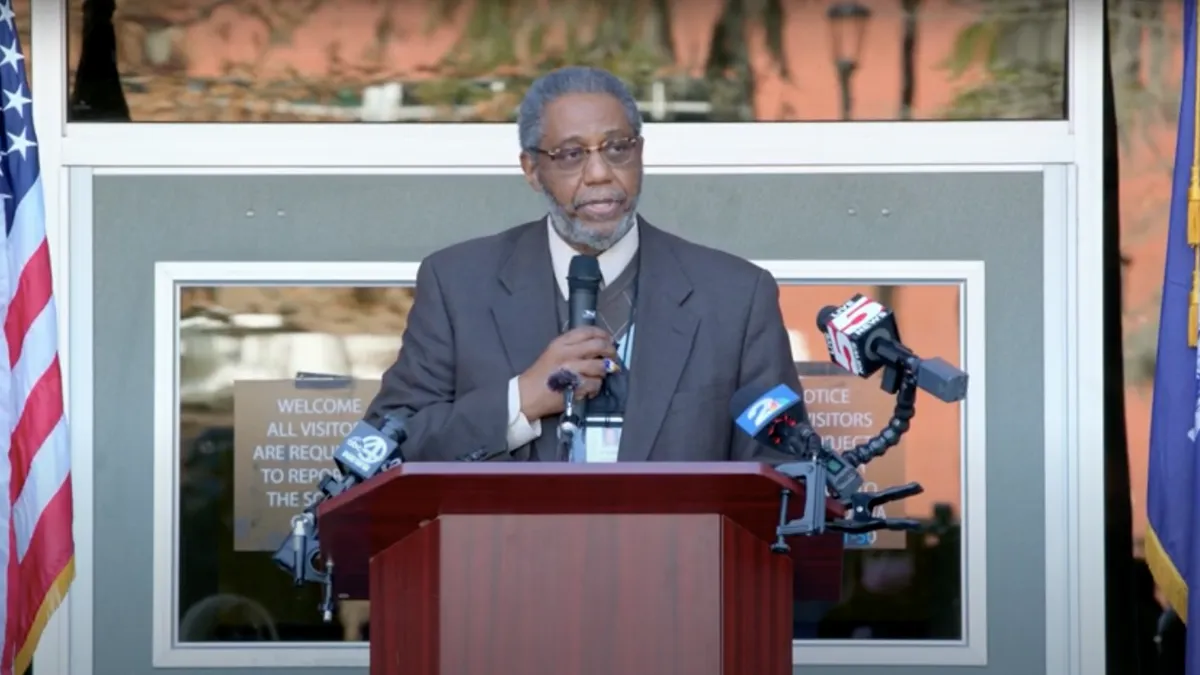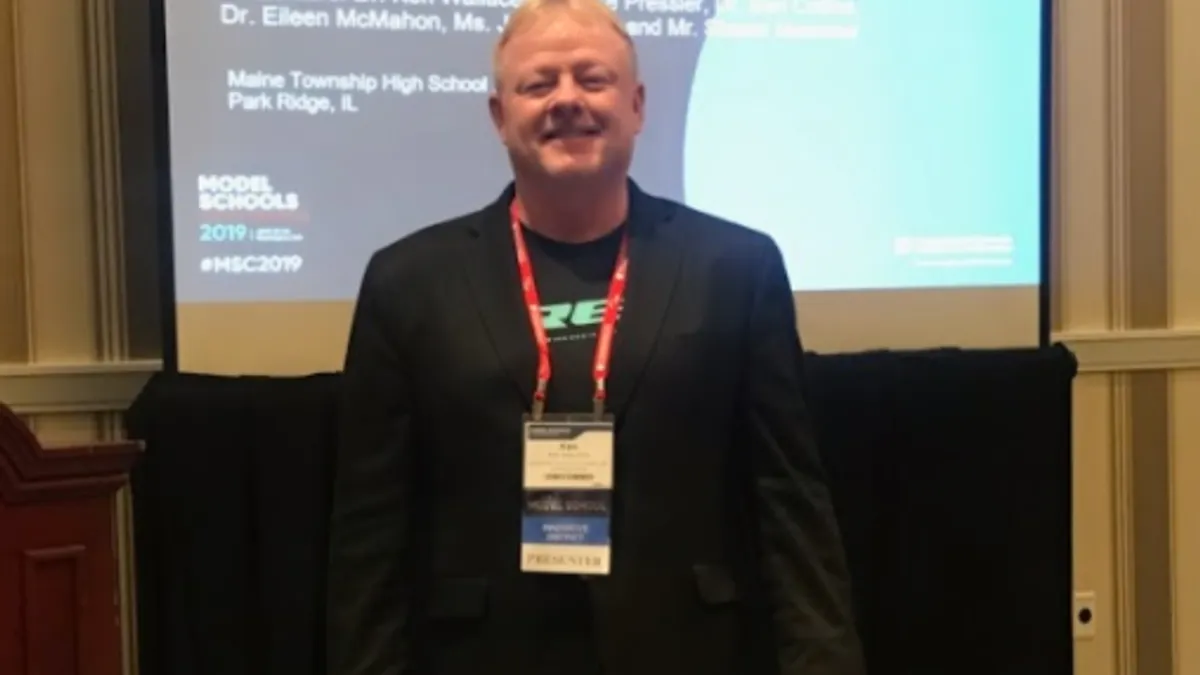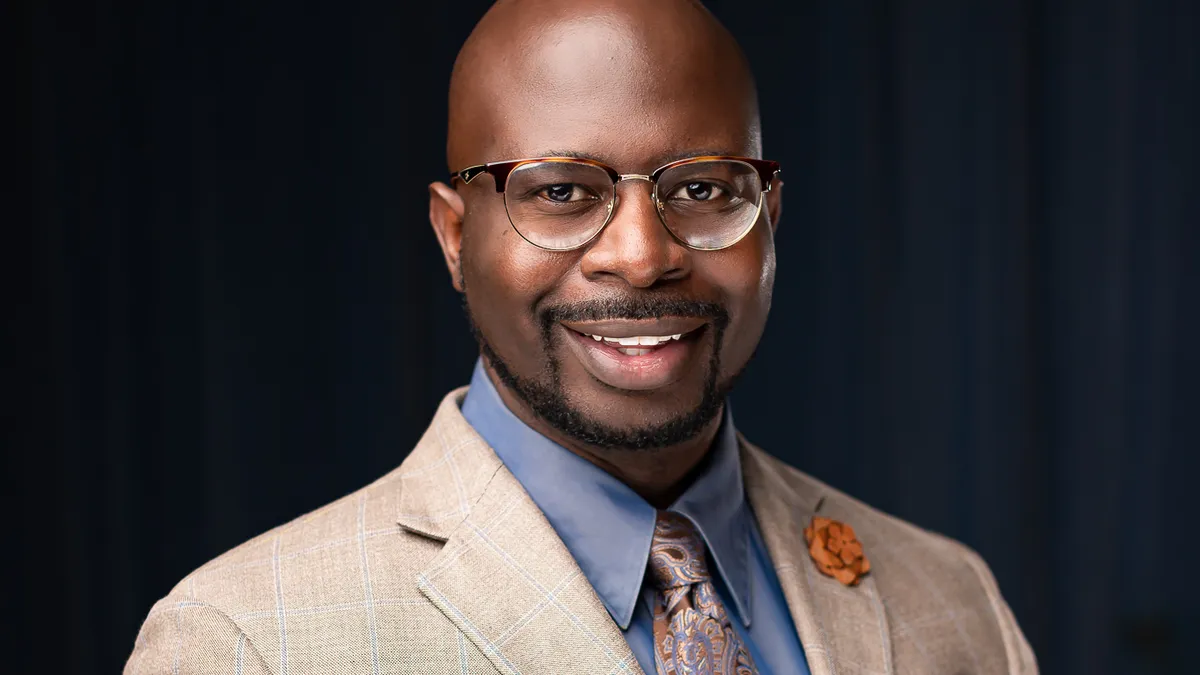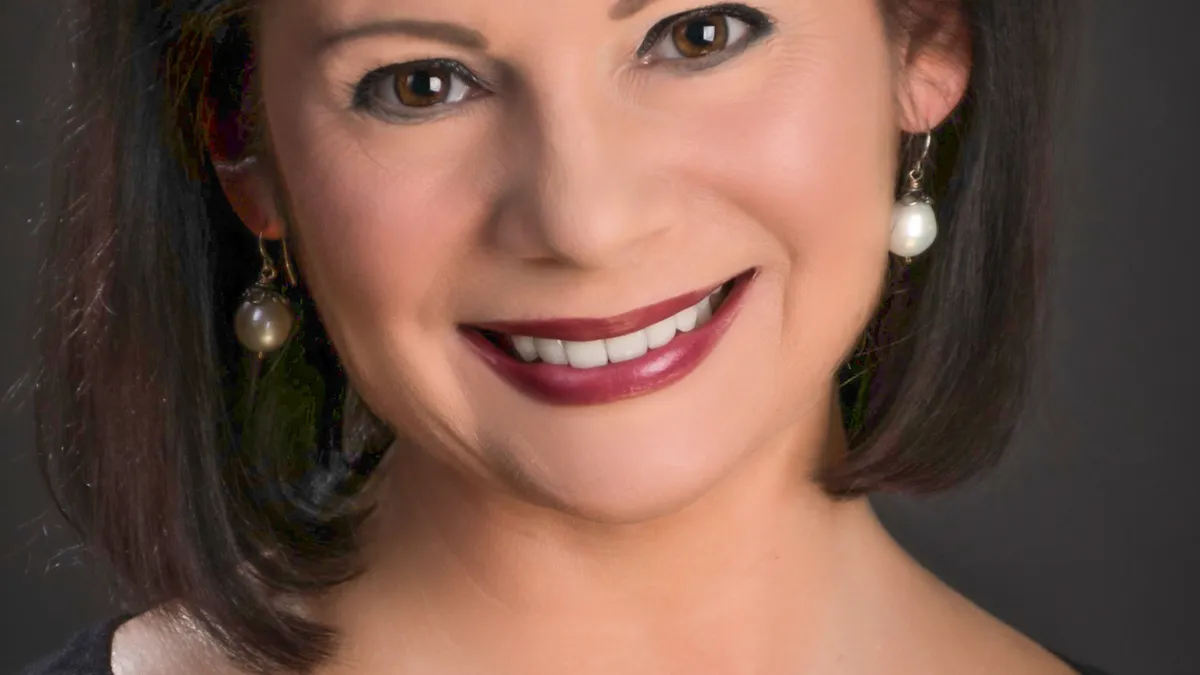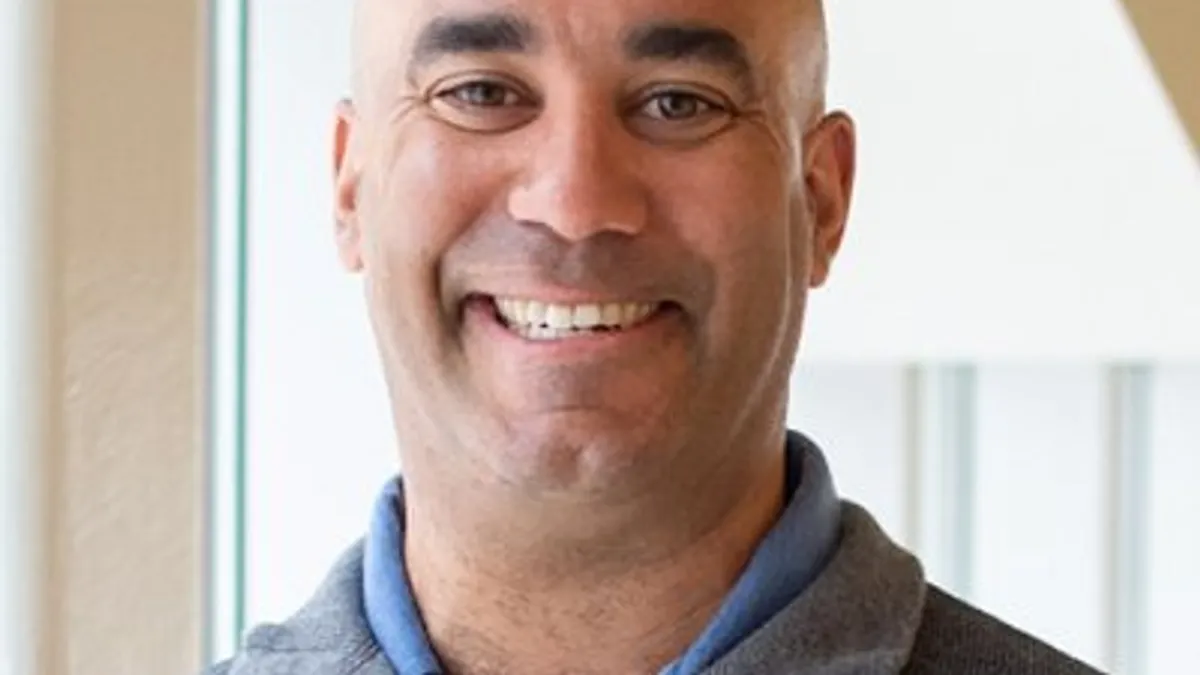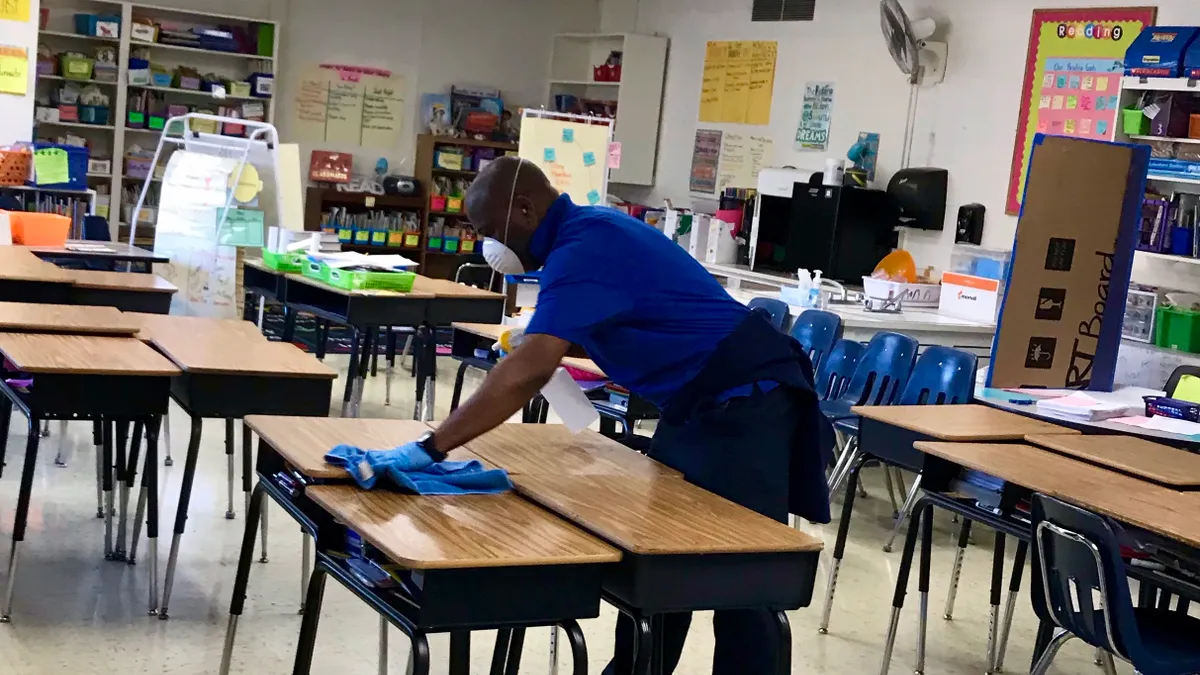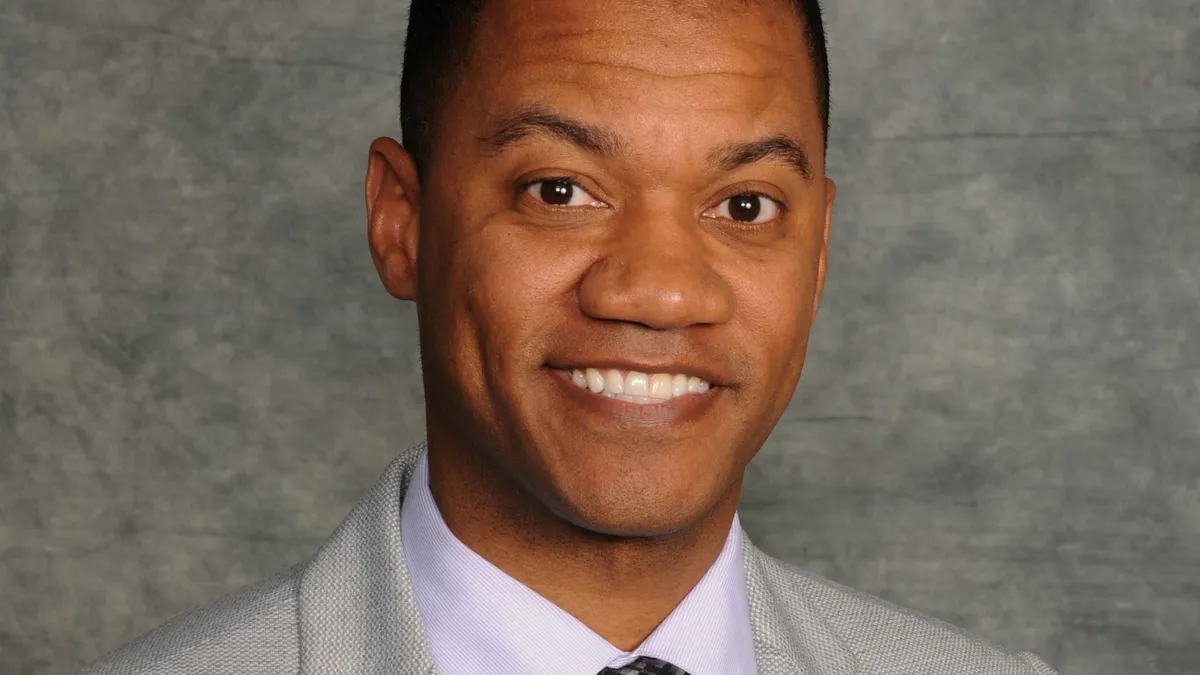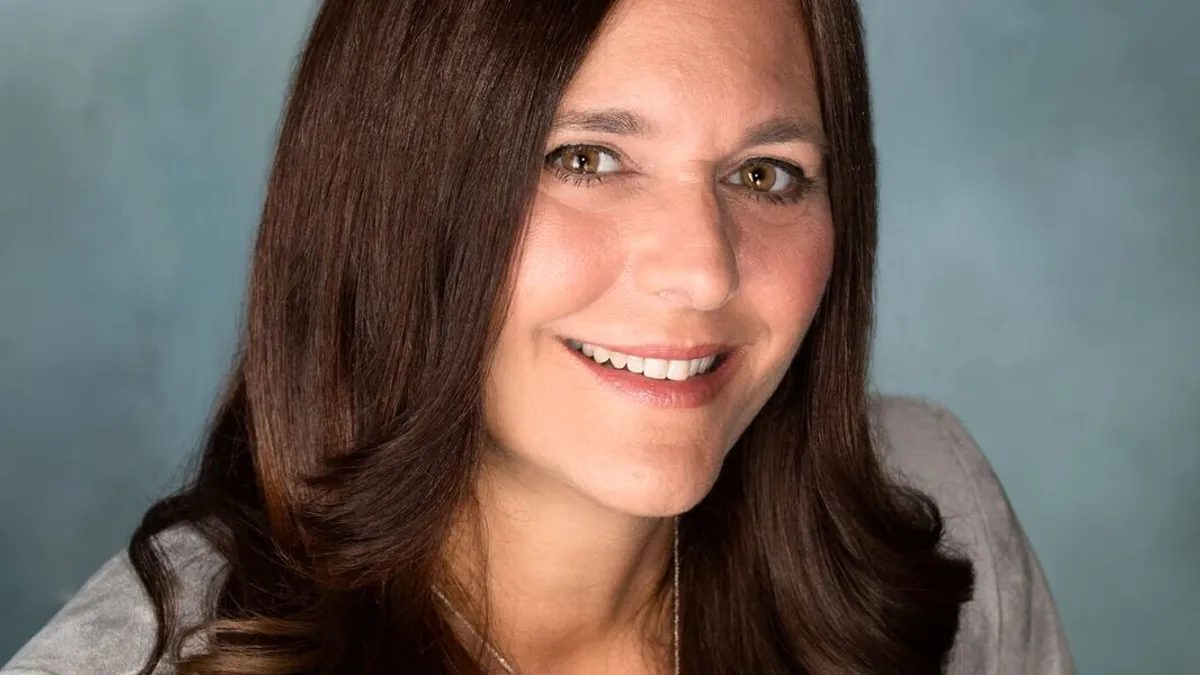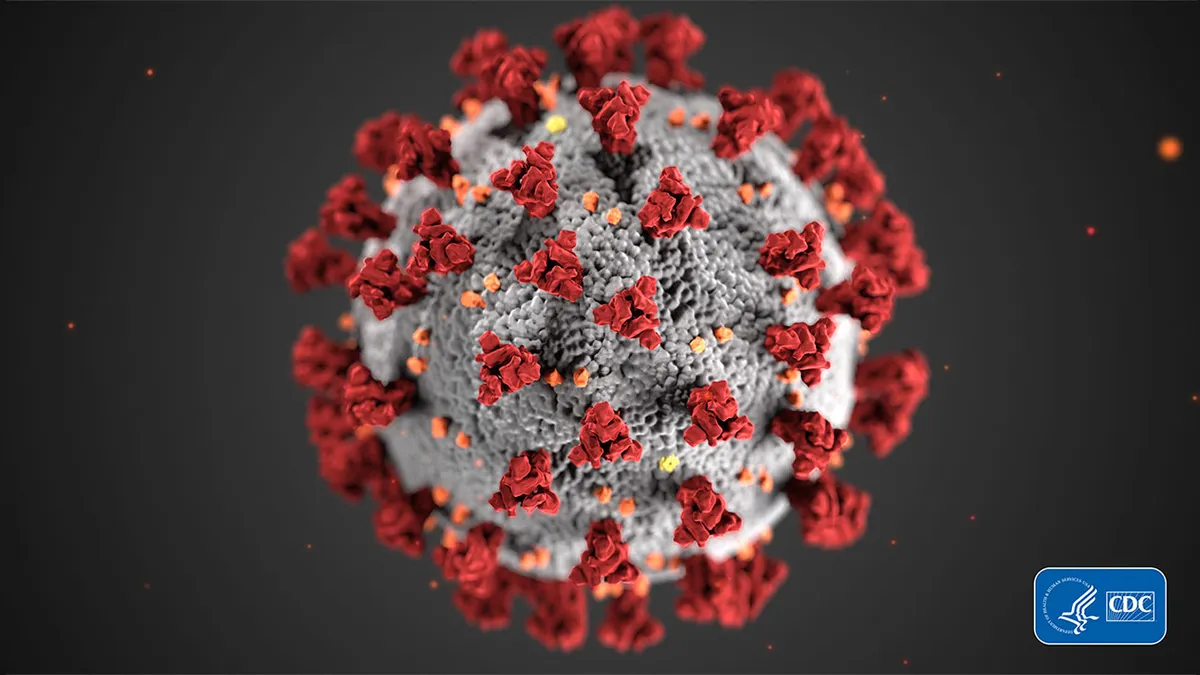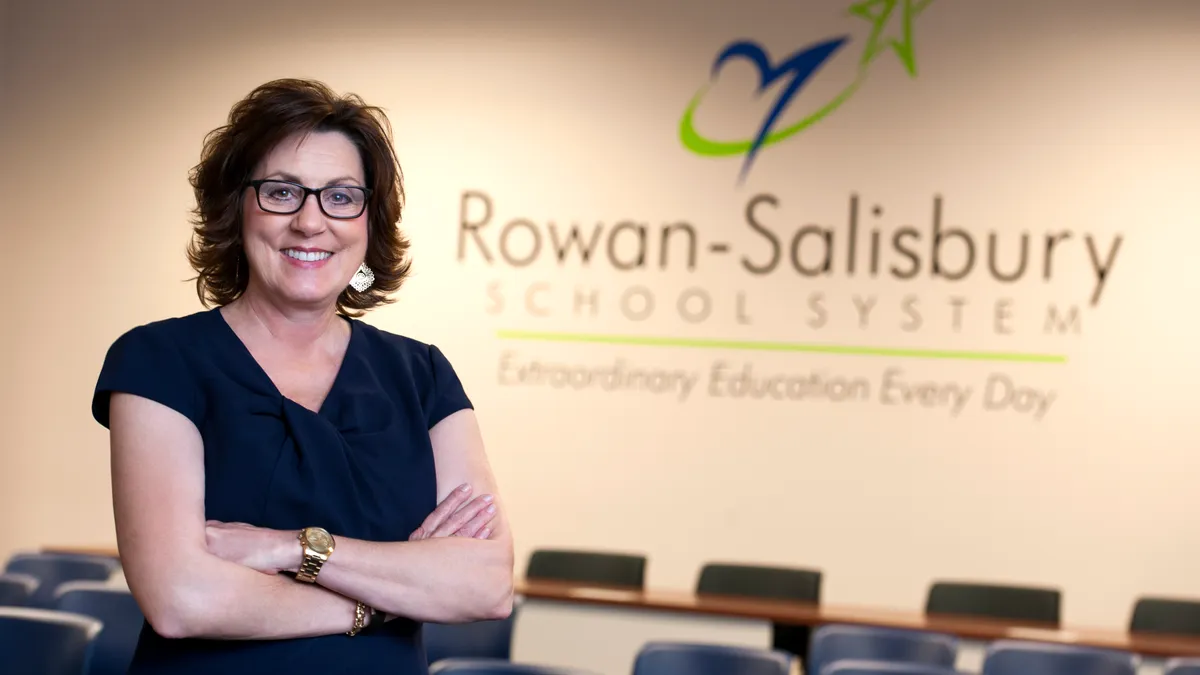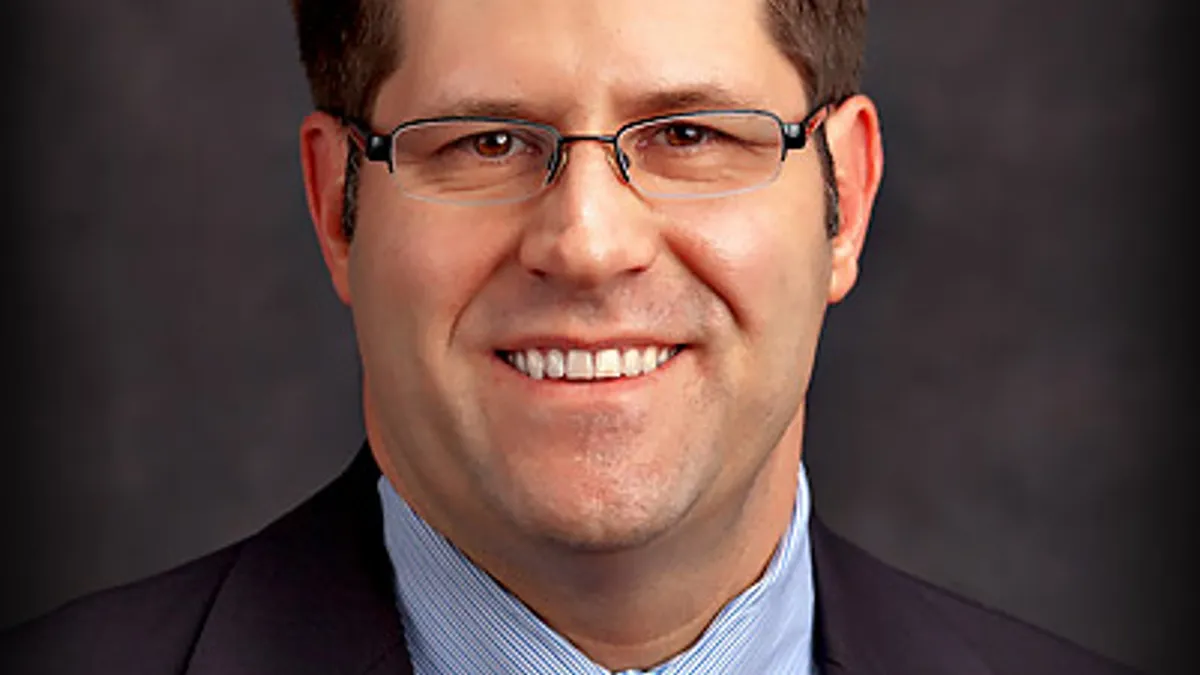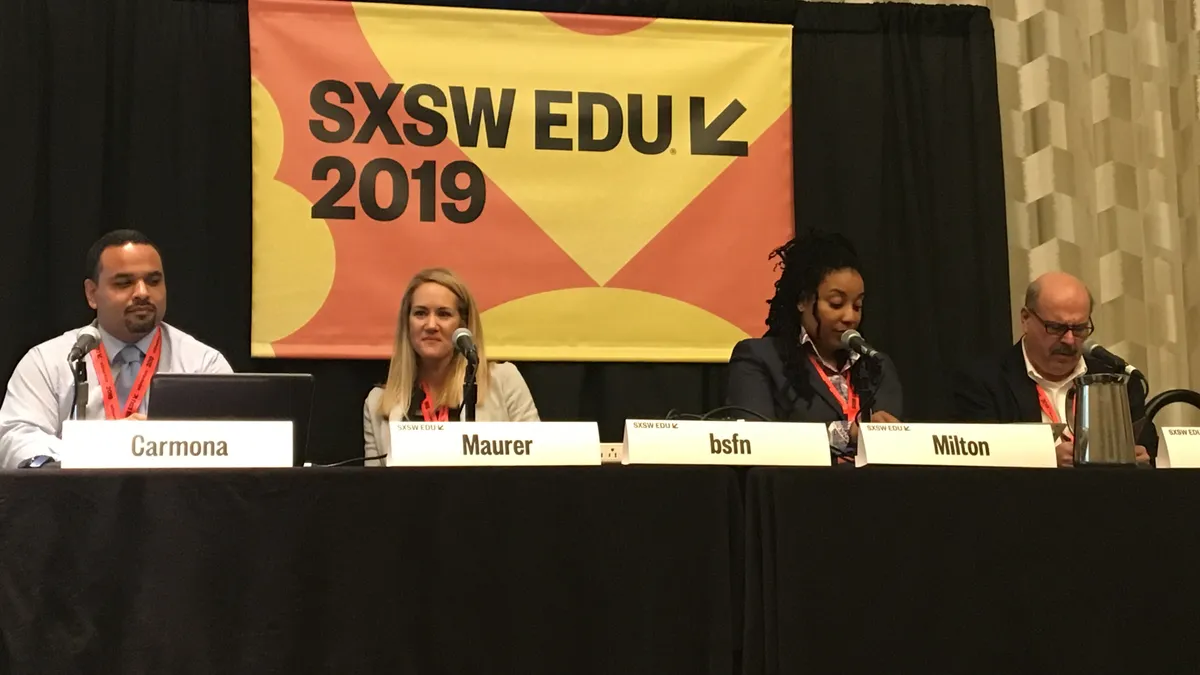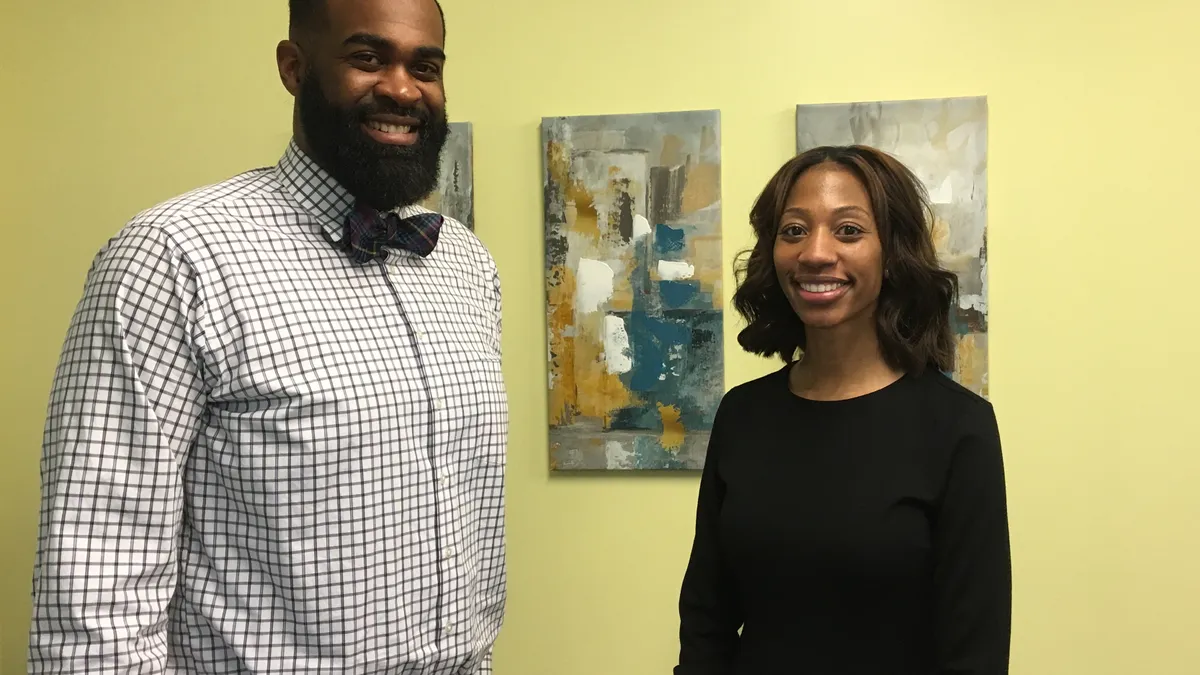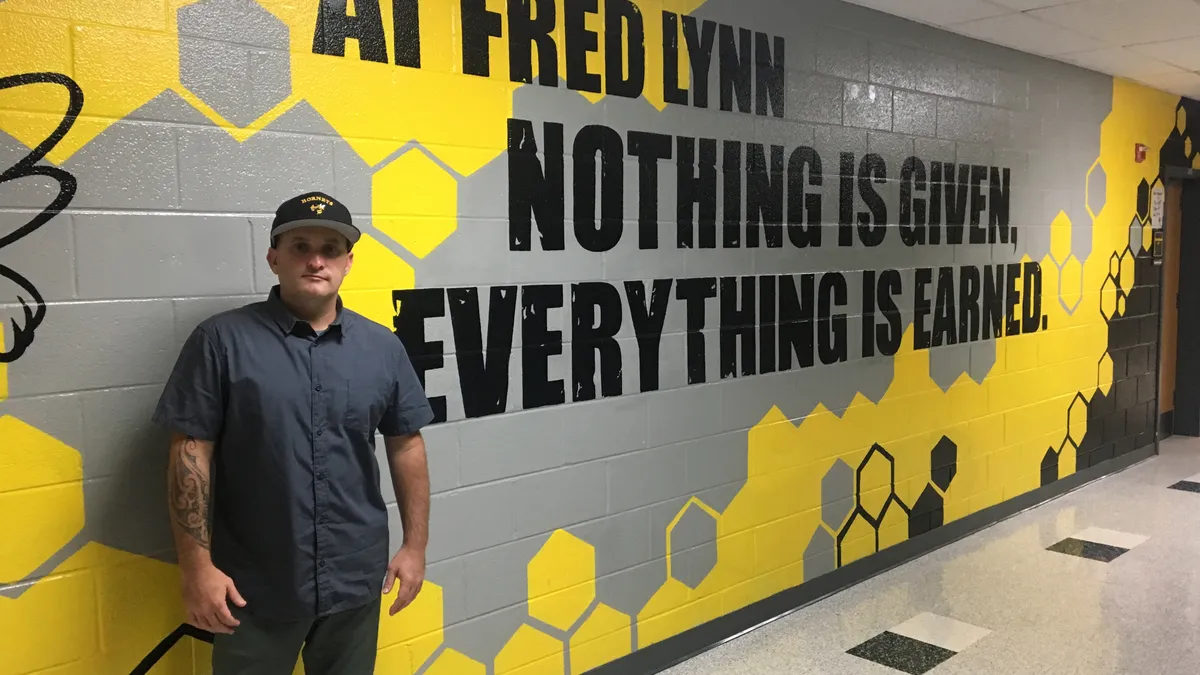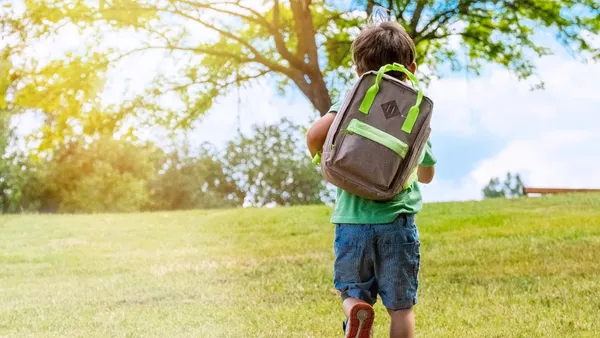Lessons In Leadership is an ongoing series in which K-12 principals and superintendents share their best practices and challenges overcome. For more installments, click here.
“My journey to superintendent wasn't really a planned one,” Sharonica Hardin-Bartley, superintendent of the School District of University City in Missouri, recently told K-12 Dive in a video call.
It’s a sentiment many education leaders can likely relate to, having simply pursued new opportunities when they felt called to rather than charting a premeditated pathway. In Hardin-Bartley’s case, that progression led her from middle school and special education classrooms to principalships and human resources leadership roles in the Ritenour School District and St. Louis Public Schools before assuming her superintendent’s post in 2016.
Her six years leading the 2,600-student, 7-school University City School District in the suburbs of St. Louis, where she grew up, have notably included successes in implementing trauma-informed and restorative discipline practices. Over the course of our conversation, Hardin-Bartley detailed the progress of that work and how there’s always room for improvement.
Editor's Note: The following interview has been edited for brevity and clarity.
K-12 DIVE: Given your previous work in human resources and the focus now on teacher shortages and efforts to recruit and retain teachers, what would you say were some of the biggest takeaways from your time in that role?
SHARONICA HARDIN-BARTLEY: We did quite a bit in my time in HR, from recruitment fairs, local and nationally, to swag to signing bonuses to housing incentives to tuition reimbursement — guaranteeing [reimbursement for] a master's degree with so many years in the district. I could go on and on. All of the things you hear about, we've implemented them.
Recruitment was honestly not as difficult. We’re competitive — competitive salaries, competitive benefit packages. If you could add in a perk, that’s extra. But the retention part is the big hurdle, particularly in schools that service Black and brown children in poverty.
You see that turnover more, and the factors I have seen that account for that turnover — people sometimes automatically think money, but money was not the No. 1 reason. The No. 1 reason I saw that people were leaving the profession was lack of support and [No. 2 was] safety — either the perceived notion they were not safe physically or emotionally.
I would say a third one would be being able to have some autonomy around curriculum, around instructional pedagogy, instructional approach.
The finances never raised to the top as the top reason — it was that support or lack of, and then whether or not teachers felt safe. And I think with COVID, that is amplified.
The teaching field is in a crisis. It was in a crisis pre-pandemic. It's in a triage crisis now because our teachers have options. A lot of them have a level of skill that they can go out and do something completely new.
We know this current generation, they're not going to be the, “Oh, I've been in education for 26 years.” They may have 26 different careers or pathways in their career in their lifetime. I'm not exaggerating. There's research that says they may move around and do up to 20 different things, and that's new for education.
That is something we're really gonna have to monitor and think differently about what that looks like and be more flexible and innovative with how we employ teachers and how we do this thing called schooling altogether.
One of the things you've received acclaim for is your approach to equity and trauma-informed practices. How much more critical have those efforts become in light of the pandemic — not just for students, but for educators as well?
HARDIN-BARTLEY: So, trauma's real. And we know that COVID has disproportionately impacted people of color and people in poverty for many reasons.
And so all of the social determinants of health that were there pre-COVID — housing quality, education, access to quality healthcare and mental health — just magnify those by 10. We are seeing that, and we're seeing the lack of connection people had when we were forced to shut down.
The whole fabric of support many families had was gone because they couldn't interact. They couldn't go to titi's house or grandma's house or interact with those safe spaces that were that support. And parents were navigating — if you were an essential worker and you were an hourly employee and the restaurants were closed, you didn't have an income and there's no reserve. There’s no savings account, and yet you're still parenting.
You still have children there. And you're still trying to figure out where you're gonna eat, if you're gonna be able to pay your rent. And so that stress, you know, we call it the ACEs study, adverse childhood experiences.
Those levels of trauma, those incidences of trauma that showed up or that continue to show up are having a huge impact on the health and well-being of people. I was very privileged with COVID, because we were virtual, but I had internet. I had heat. I had food, electricity, home, and I was able to do my job. Now, we could question whether or not we were able to be effective virtually, but I could still function in my job. Many of our families didn’t have that option.
So the trauma we are seeing reflects the condition our families have been in. I'm not surprised by the increases of mental health instances in hospitals, the number of children who are being hospitalized. The number of students who are committing suicide is increasing, so it is something I think we need to own, we need to acknowledge and we need to put mental health supports in place to mitigate and remedy some of these woes.
And we also need to address the reasons for people being unemployed, to not be able to get a job. The reasons for individuals to have food scarcity, to not be able to access quality food or to not be able to access quality healthcare regardless of their ability to pay for it or not.
All of those factors don't leave or stay at the school door when students come to school. They come with them, and as a school system, we have to support. We can't say, “OK, don't worry about the fact that you didn't have breakfast. Sit here and read this book.” We have to provide those basic needs in addition to the academic needs.
I say that we're not the entity that can stop trauma. I don't have the ability as a school system to disrupt all of the societal woes, but as an educator, I should be aware of what trauma looks like. I should be able to respond to it, and I should be able to know enough about trauma so I understand when I'm skilled and able to support it, or when I need to tap out and tap in another healthcare expert to meet that child or that family's needs.
How has that trauma-informed approach shifted from when everything was remote to now, when everything is working toward going back to some semblance of “normal” in-person learning? Have you worked with different partners in the community?
HARDIN-BARTLEY: We partner with mental health experts in therapeutic and behavioral health. We partner with an agency called Alive and Well Communities that is a statewide agency that focuses on trauma. It was developed after Mike Brown's murder as one of the recommendations from the Ferguson Commission to really help communities heal. (Editor’s Note: Brown was a Black man shot in 2014 in a St. Louis suburb by a White police officer who ultimately was not charged.)
We also leverage our students and give them tools and resources around restorative practices, restorative approaches, so they are able to be agents of change and advocacy in supporting themselves and advocating for their peers.
We know mental health and physical health are interconnected, so we partner with medical experts as well to, again, make sure our students are getting those screenings, eye screenings, dental screenings. If you’ve ever tried to work with a toothache, it's almost impossible. So that whole well-being piece is not isolated from this discussion.
We know, as I shared before, schools can’t be everything. A counselor who is trained as a school counselor is nine times out of 10 not a therapeutic or behavioral health counselor. They don't have the skill set or the expertise. And so we have to understand that, and then work to partner with those professionals that have that level of expertise. And it's differentiated. There isn't a one-size-fits-all, and it really is a concept of having all hands on deck.
That ties to just another good point about an area of school services that really got more support during the pandemic: school meals. Because you can't really learn as well if you're hungry, and you're gonna get sick more often if you're not keeping up with your nutritional needs.
HARDIN-BARTLEY: That's a great point. One of the things we did first when we closed, I didn't know how I was gonna do school, but I knew I was like, “OK, what are they gonna eat?”
I know that sounds superficial, but to your point, if I am worried about my meal, what I'm gonna eat — I don't even know what that's like to not have access to food. And there are families where that was their reality: School was where (some students) got two meals. And in some instances, we sent home meals for that third one.
So we immediately started a food distribution program, and over the course of the pandemic, we served almost a million meals to families. And we're a small system.
I always say if you're not well, you can't learn. And even with the food scarcity piece, the obesity rates are higher in high-poverty communities. Well, why is that higher? If my only meal is McDonald’s, that's because it's accessible. I can get a Big Mac for a dollar and a large fry for a dollar. If that's my only source of nourishment, even though I don't have an abundance, what I'm putting into my body is not giving me those nutritional needs.
So you have heightened obesity. You have heightened cases of other ailments and illnesses that come from that. So we also have a sustainability effort where we have gardens in all of our schools to help children understand the importance of healthy foods, and how accessible it can be and how inexpensive it can be to grow some vegetables and then consume those vegetables.
One of the other things you received attention for prior to the pandemic was your implementation of mindfulness practices and restorative circles and discipline, and how that lowered out-of-school suspensions. How did you approach doing that, and what sort of efforts were there to make sure everyone was on board with it?
HARDIN-BARTLEY: Well, it's still a work in progress. We started the work here with restorative practices because having a restorative approach to discipline and conflict is a way of being trauma-informed.
We know our discipline had been very punitive. We were cited by the ACLU as having the worst discipline data, of disproportionality between Black and White students. It was not a good data point. We were not proud of it. So in lieu of saying, you know, “ACLU, don't put us on blast,” we said, “Partner with us. We want to own the data. We want you to educate our parents.”
So we hosted “know your rights” sessions for parents so they can know their rights. We went through our discipline handbook through a restorative lens. We still have some work to do with still some punitive language in there that we need to change.
And the mindfulness work is, again, about understanding trauma. If you had a soda can and you shake it up and you just keep shaking, and you shake it for five minutes and give it to someone and say, “Open it,” what happens to the soda? It explodes. That's our brain with traumatic events. And what is traumatic for me may not even phase you and vice-versa. What mindfulness does is it is a way to teach students de-escalation strategies.
I'll have children say, “I'm at a 10 and I need to get to a 5, and I need to go.” And they can process what that means. Some of them, to de-escalate, their mindful practice is they need to run in place. Whatever it is, it’s the intent of “you are in control of you.” You may not be able to control everything that's going on around you, everything is chaotic all around you, but you can take two minutes to practice mindfulness.
For that child, it could be the difference between that child exploding, punching someone, having an altercation, but it is so important to practice that self-regulation. People who have support systems, they have tools. Some of them don't exercise them, but they have tools.
We want to give students and adults and families tools they can use. So we created what's called The Peace Place. It's on our website, and it just has free resources for mindfulness.
What is one piece of advice you would give to other district leaders?
HARDIN-BARTLEY: Sometimes you have to go slow to go fast. I know that's cliché, but this is a marathon. It's not a sprint. There are a lot of forces that want quick fixes. The relationship work takes time. The trauma-informed work takes time.
I am the most impatient person I know, and I want it right now. I want us to do it right, right this second, and it's not gonna happen overnight. So I have to balance the urgency of the need with the pace and the change management process.
When I was a student, I didn't have a voice. I sat and did what my teacher said. That's how school was. You were a good student if you did that. Now we're saying, “Speak up. Use your voice. Advocate for yourself.” That's not how a lot of teachers were trained.
We're changing a system that has been established for many years, and we're making it more accessible and more situationally appropriate, more culturally appropriate.
So I think the biggest advice is “stay the course.” It is not easy, and it is something that requires persistence and grit and perseverance. But the reward is seeing an environment where children are loved, and they have choice and voice and feel safe emotionally and physically.
That’s a beautiful space, when they have a joy of learning, a joy of being in an academic setting, of being around their peers and knowing schooling is to help them advance something bigger than themselves in the world. And that the work is relevant and meaningful to something beyond secondary education. That's powerful.


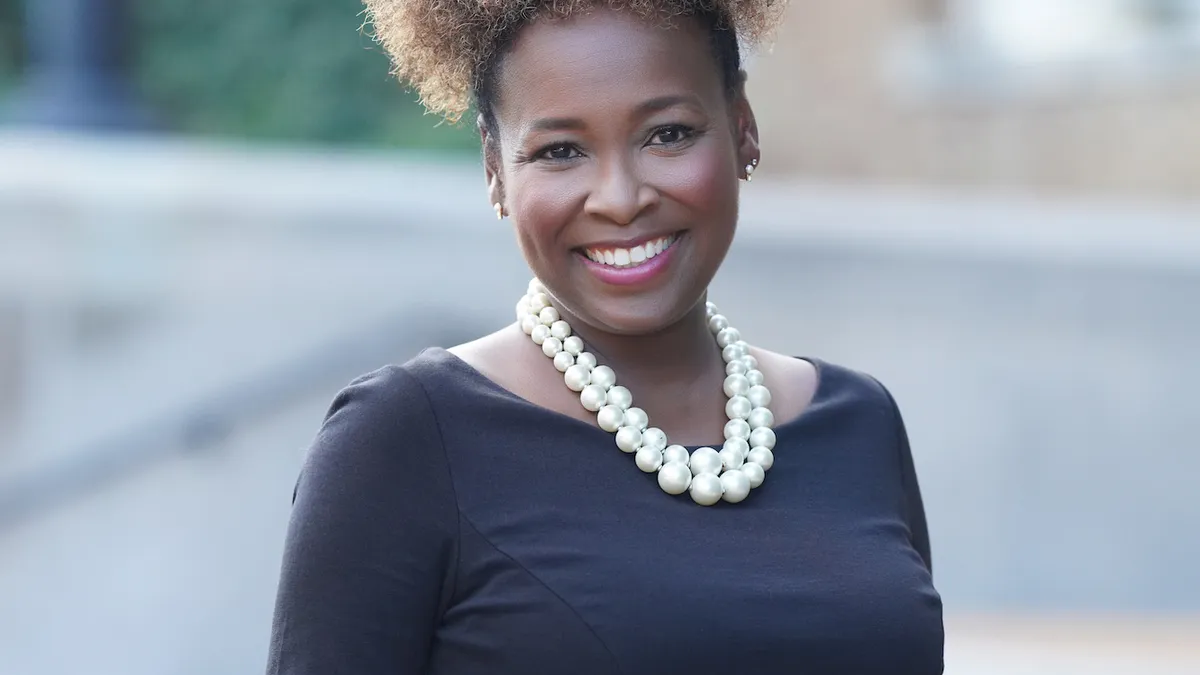




 Dive Awards
Dive Awards
